32 Best Ryder Cup Players Of All Time
We take a closer look at some of the best players to have played in the biennial showdown
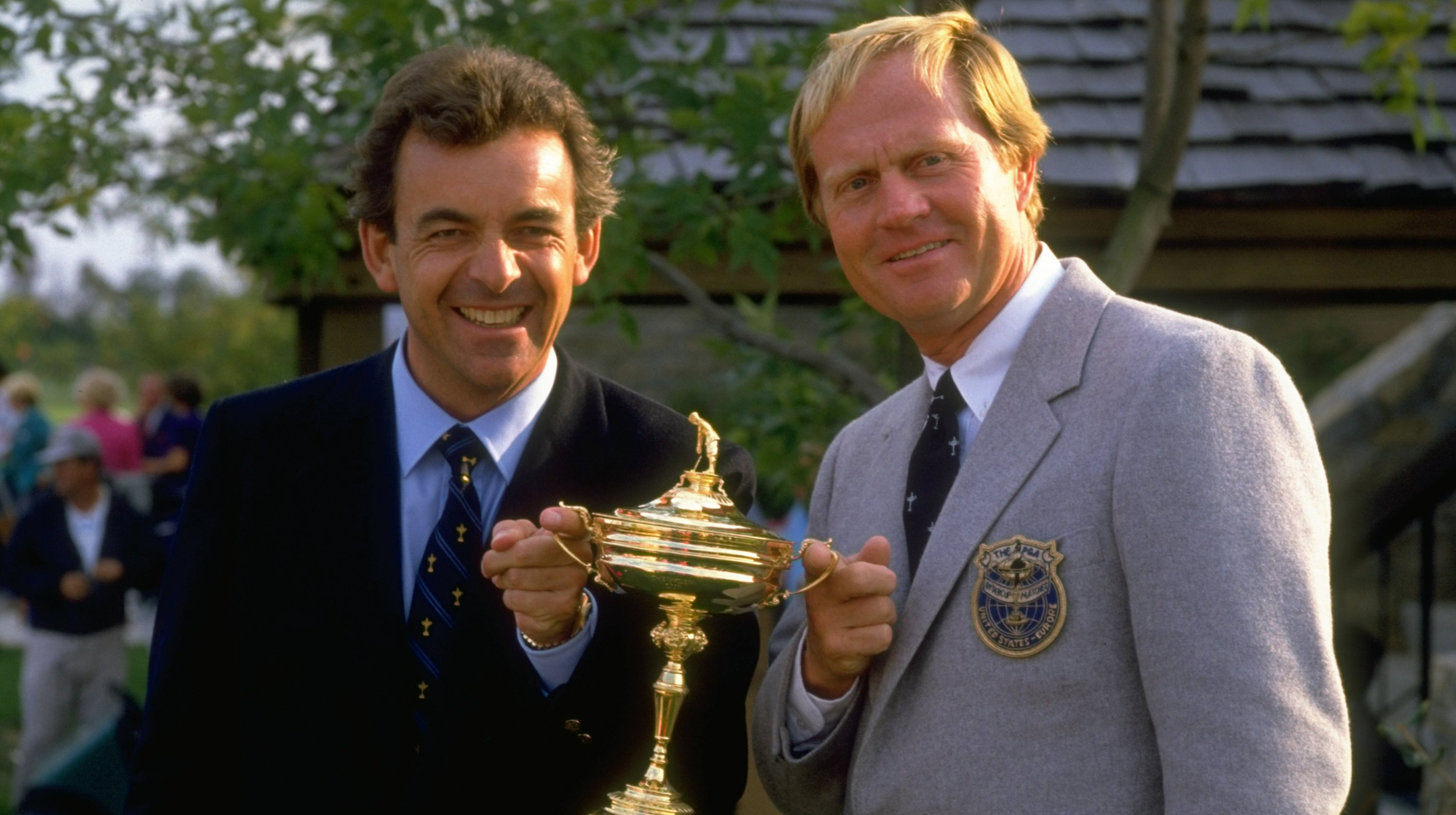
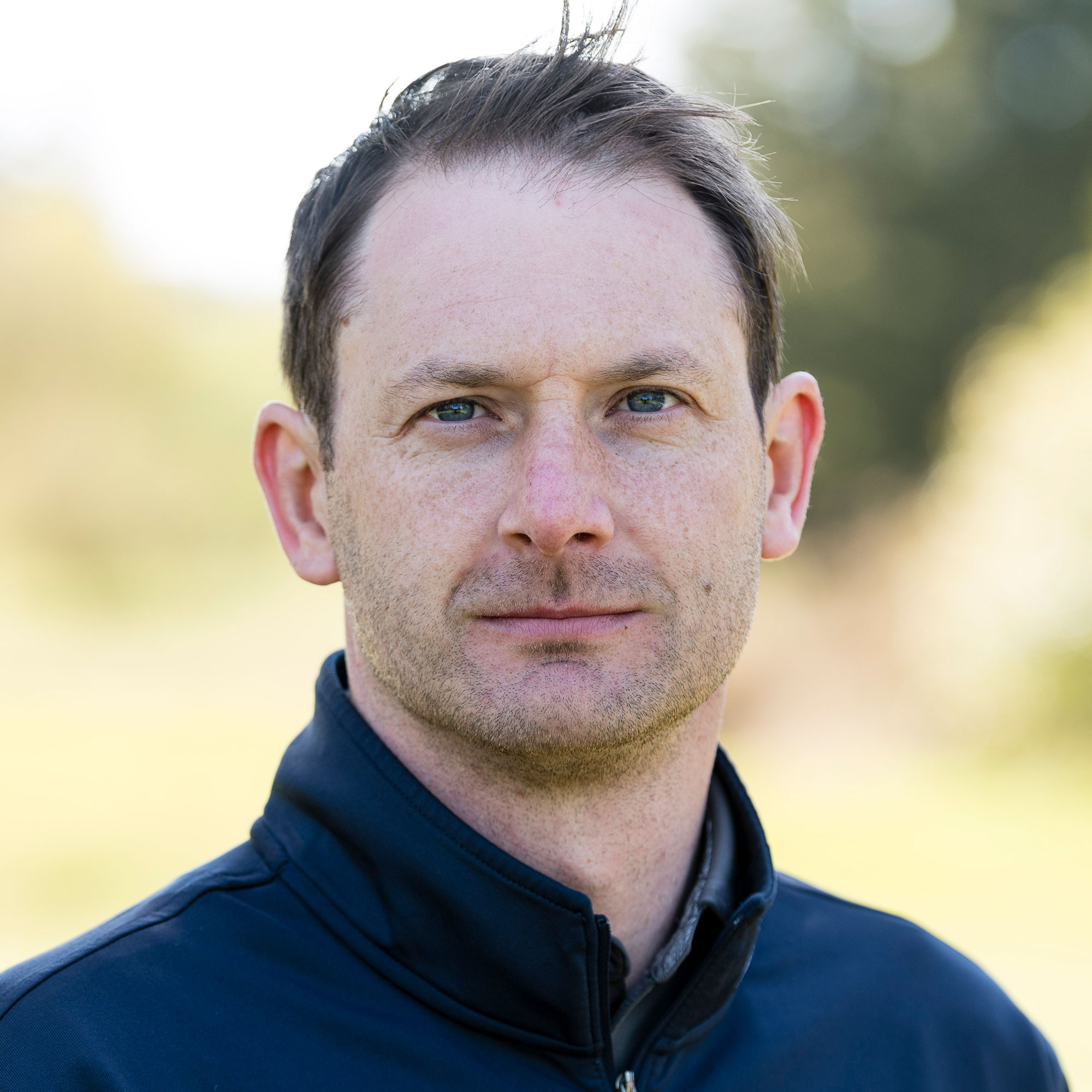
What makes a great Ryder Cup player? Not just a great, one of the best of all time? Total points won is surely a good barometer. For example, the late, great Seve Ballesteros racked up 22½ points over his eight appearances. Quite simply, a great.
However, can we really say Mr Woods – who has a decent number of points to his name – is really a Ryder Cup great? Despite, for many, being the greatest player of all time, the answer to that question would have to be no – in our opinion at least. Yes, he’s had his moments in the biennial showdown – of course he has – but he’s also had one or two forgettable matches and appearances, something that’s reflected in his points percentage.
Total points won should not be the only way of ranking Ryder Cup players. There’s no question that Ian Woosnam (16½ points) left his mark on the contest, but we’ve scored the passionate Welshman down (harshly, some might feel) for not winning a singles match. Sorry, just not good enough, Woosie.
There’s no favouritism here. We’ve split our list so we have players from both sides of the Atlantic. And to avoid receiving angry letters from golf fans, we’re not even going to try and attempt to rank these Ryder Cup greats. Let’s just say they’re all legends. So, in no particular order….
DARREN CLARKE
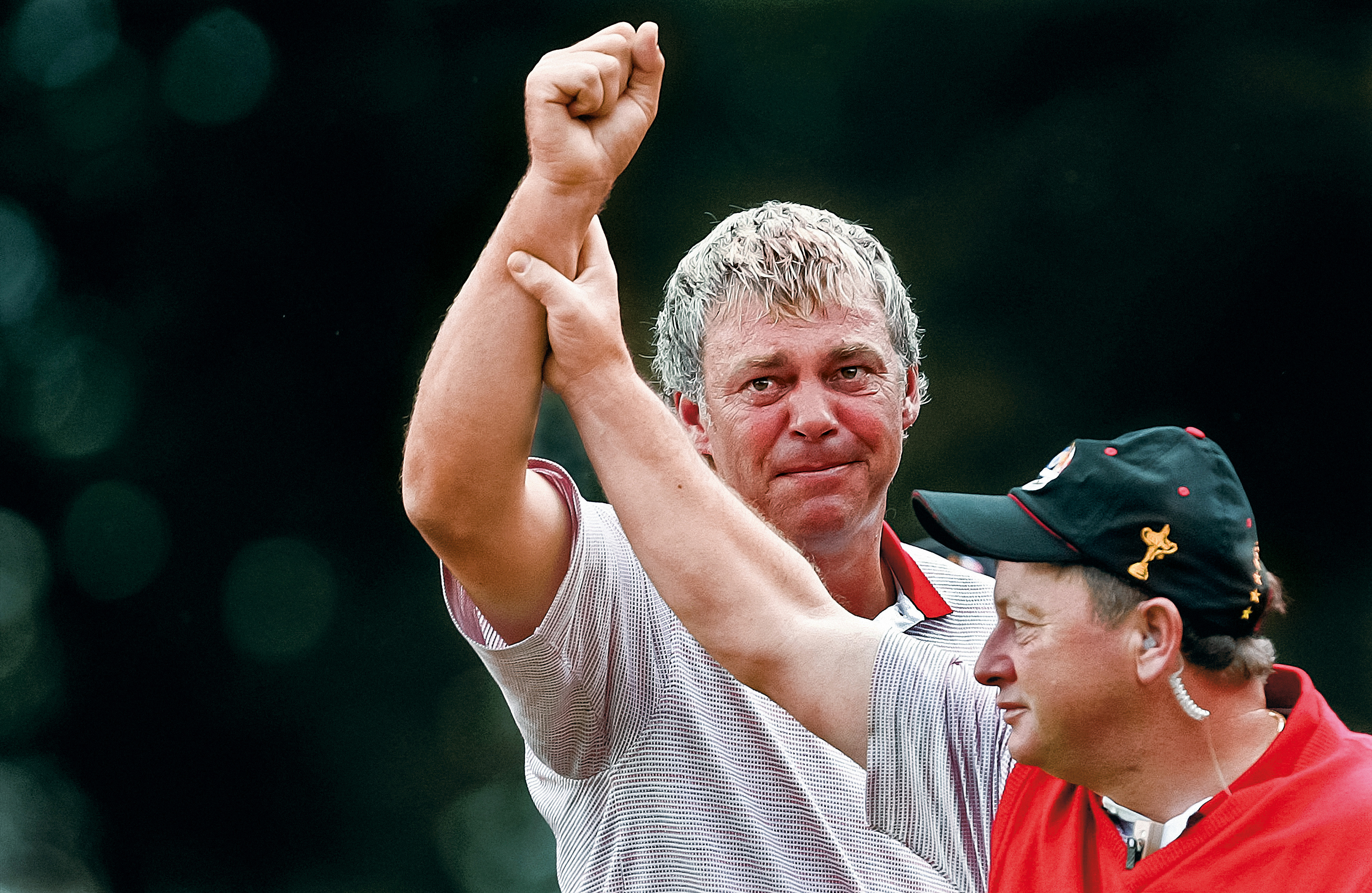
The highlight of the 2011 Open champion’s long history with the Ryder Cup was the weekend at the K Club in September 2006. The Ulsterman, who was still trying to come to terms with the tragic loss of his wife, Heather, stepped up for captain Ian Woosnam and delivered three wins from three matches. There are players who have recorded more points for their team, but has anyone produced the goods in such testing circumstances? It was a truly heroic effort.
SAM SNEAD
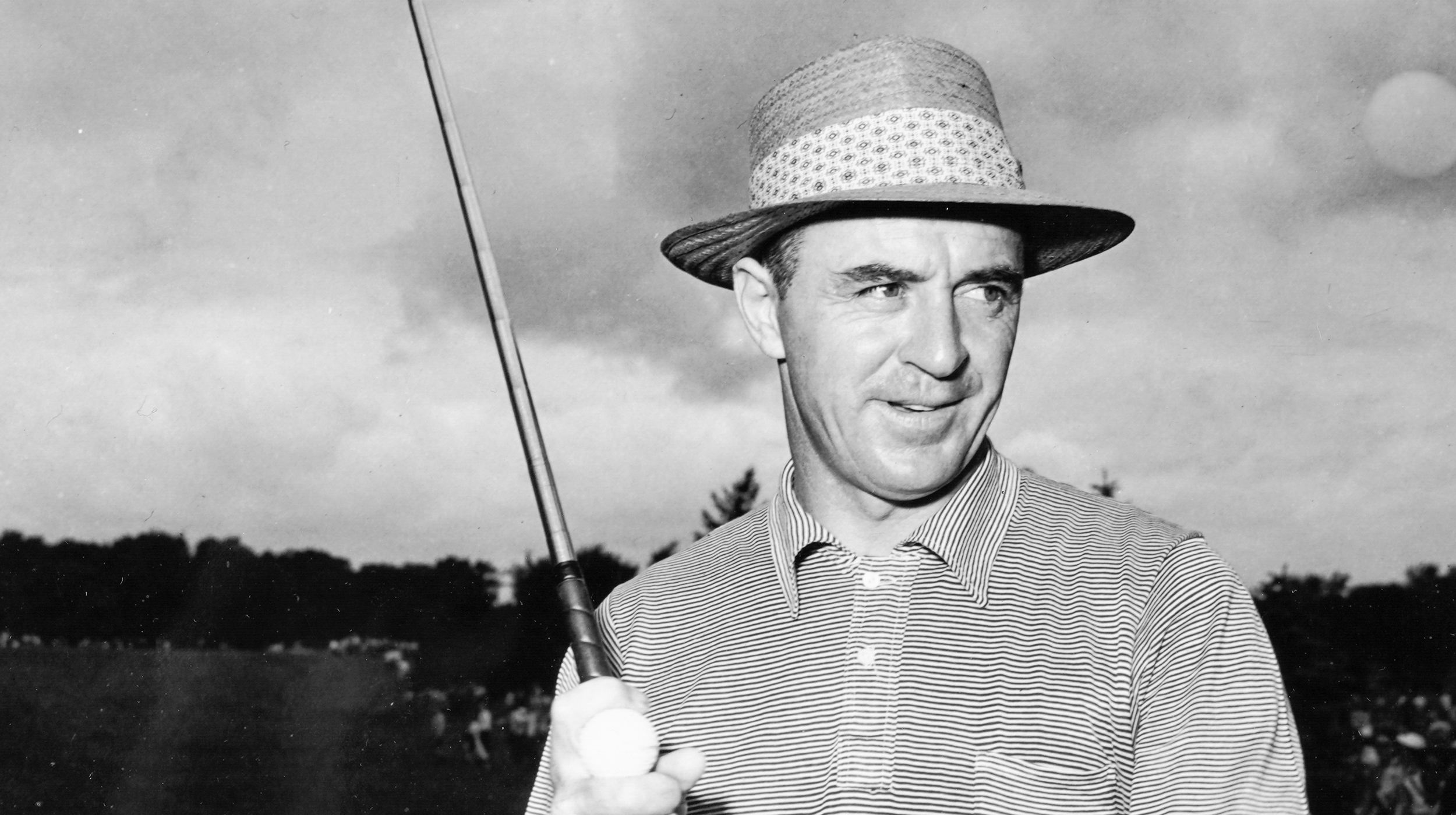
The great Sam Snead was part of the 1937 US Ryder Cup team that won on British soil for the first time. That victory came at Southport & Ainsdale Golf Club, with Snead, who had been runner-up at that year’s US Open, claiming a 5&4 victory over Richard Burton. With the war looming, it would be a decade before the contest returned. Snead was there again in 1947 and for another five Ryder Cups after that. He ended his Ryder Cup career with 10½ points.
JUSTIN ROSE
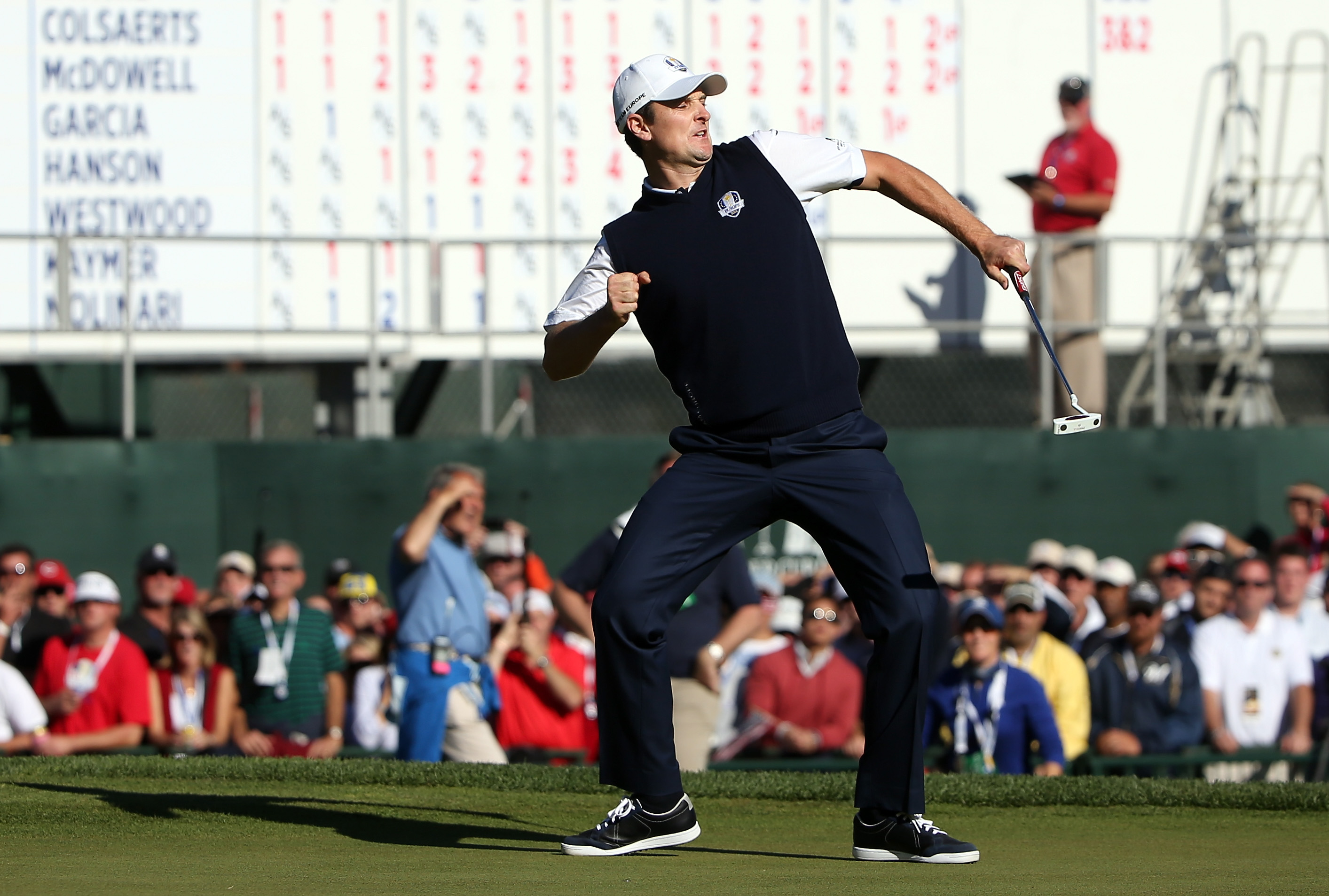
Justin Rose has been quietly going about his business accumulating points ever since making his Ryder Cup debut in 2008. Generally quite reserved, this competition has turned the Englishman into more of a fist pumper than we’re used to seeing. One of his finest moments came at Medinah in 2012, when he won the 17th and 18th to defeat Phil Mickelson 1UP. Even the American applauded. The 40-footer on 17 was truly inspirational.
Get the Golf Monthly Newsletter
Subscribe to the Golf Monthly newsletter to stay up to date with all the latest tour news, equipment news, reviews, head-to-heads and buyer’s guides from our team of experienced experts.
GENE SARAZEN
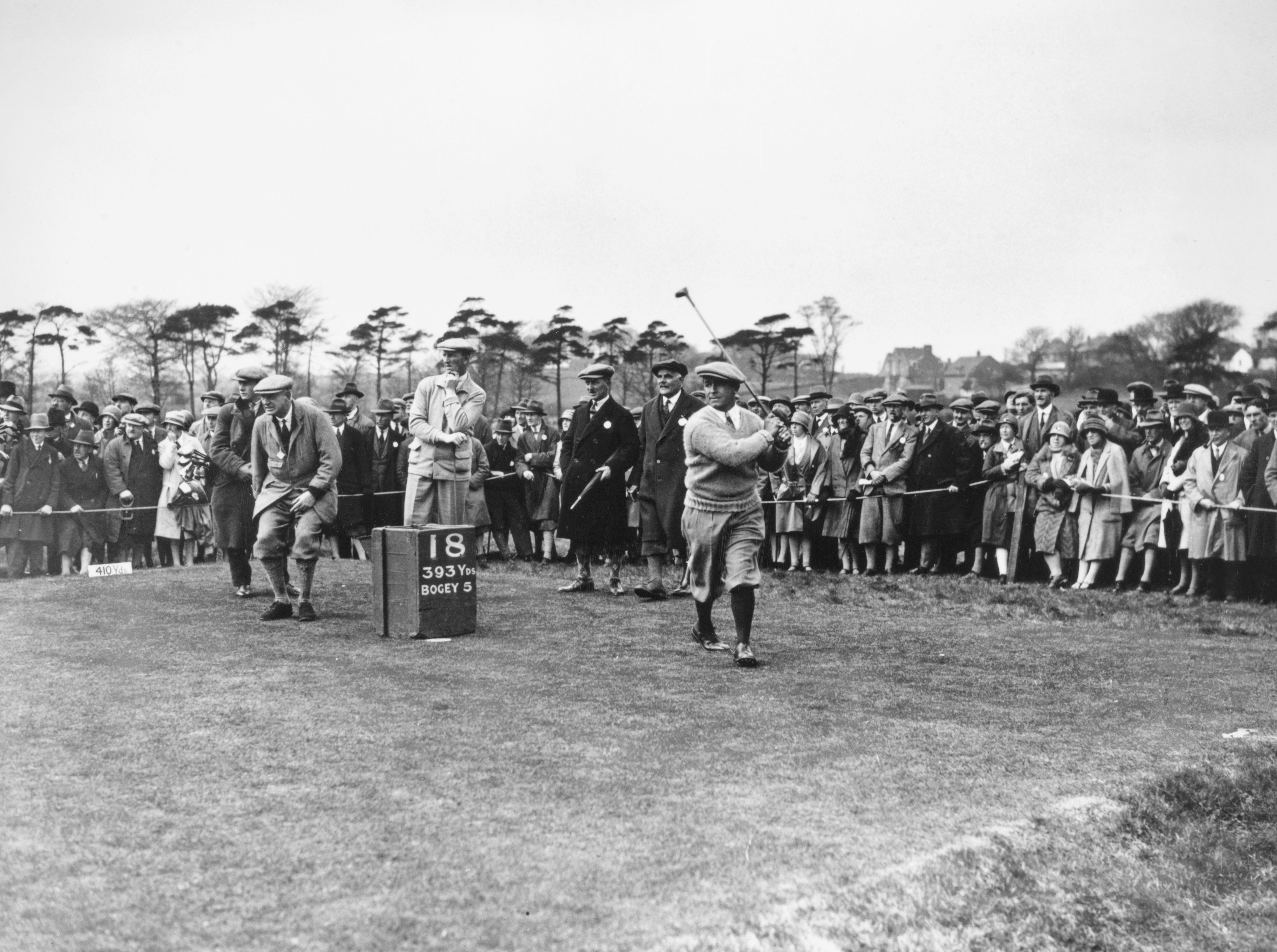
Not many people got the better of the legendary Gene Sarazen, who ended his Ryder cup career with a 69% points average. He played in the first formal match in 1927, which the Americans won comfortably. He may have suffered a 6&4 loss to Archie Compston two years later, but he was generally the one handing out such defeats. In 1935, he paired up with the great Walter Hagen for a 7&6 romp over Alf Perry and Jack Busson, and he ended his Ryder Cup career with eight-and-a-half points from 12 matches.
PETER ALLISS
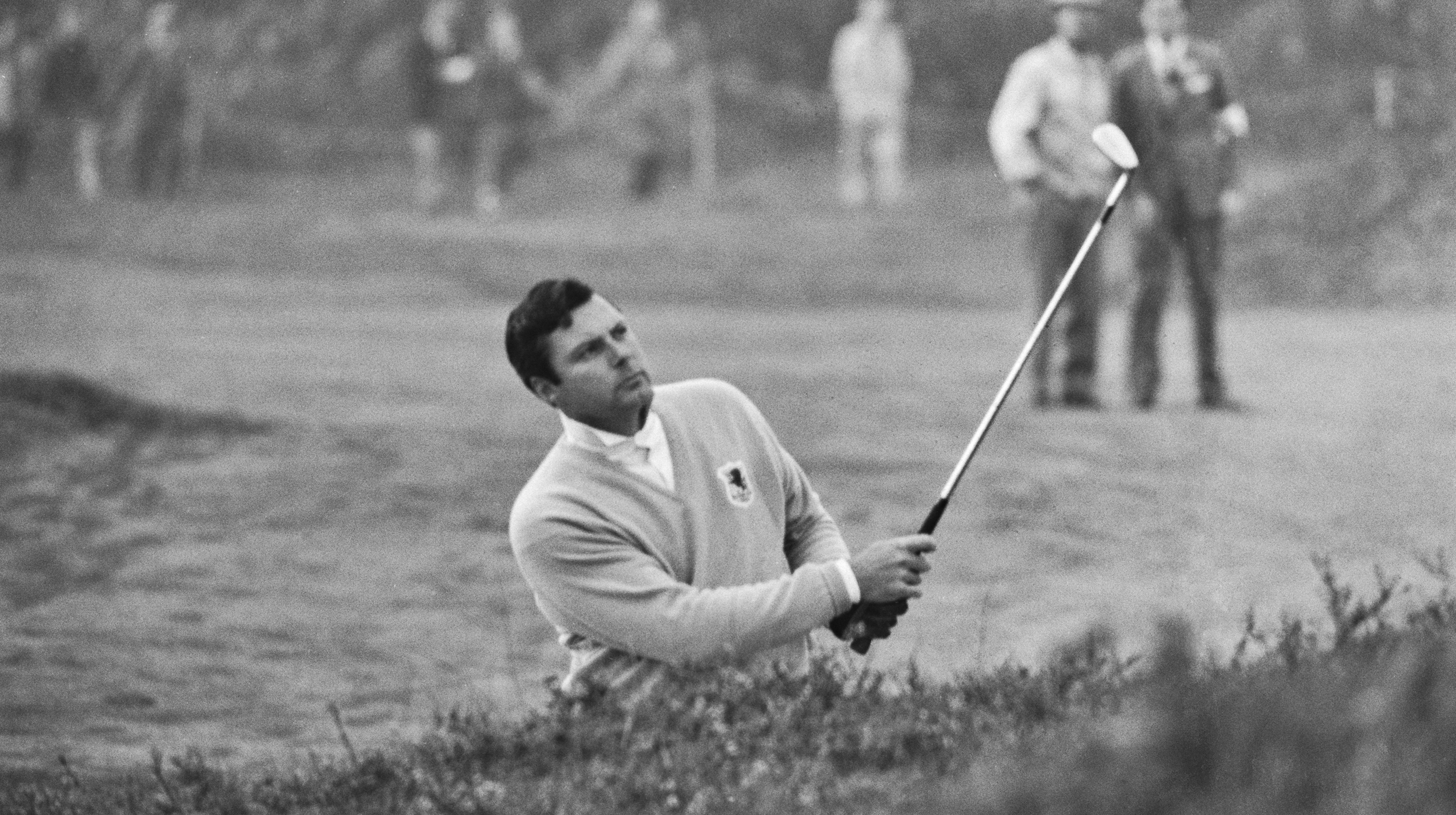
Peter Alliss, who later in his career would become known as ‘The Voice of Golf’, played on eight Ryder Cup teams between 1953 and 1969. He and his father Percy were the first father-son combo to both compete in and win the Ryder Cup. Peter claimed a couple of big scalps during his Ryder Cup career, including the great Arnold Palmer, who later complimented the Englishman’s swing and tenacity. Alliss won a total of 12½ points for his team.
PAYNE STEWART
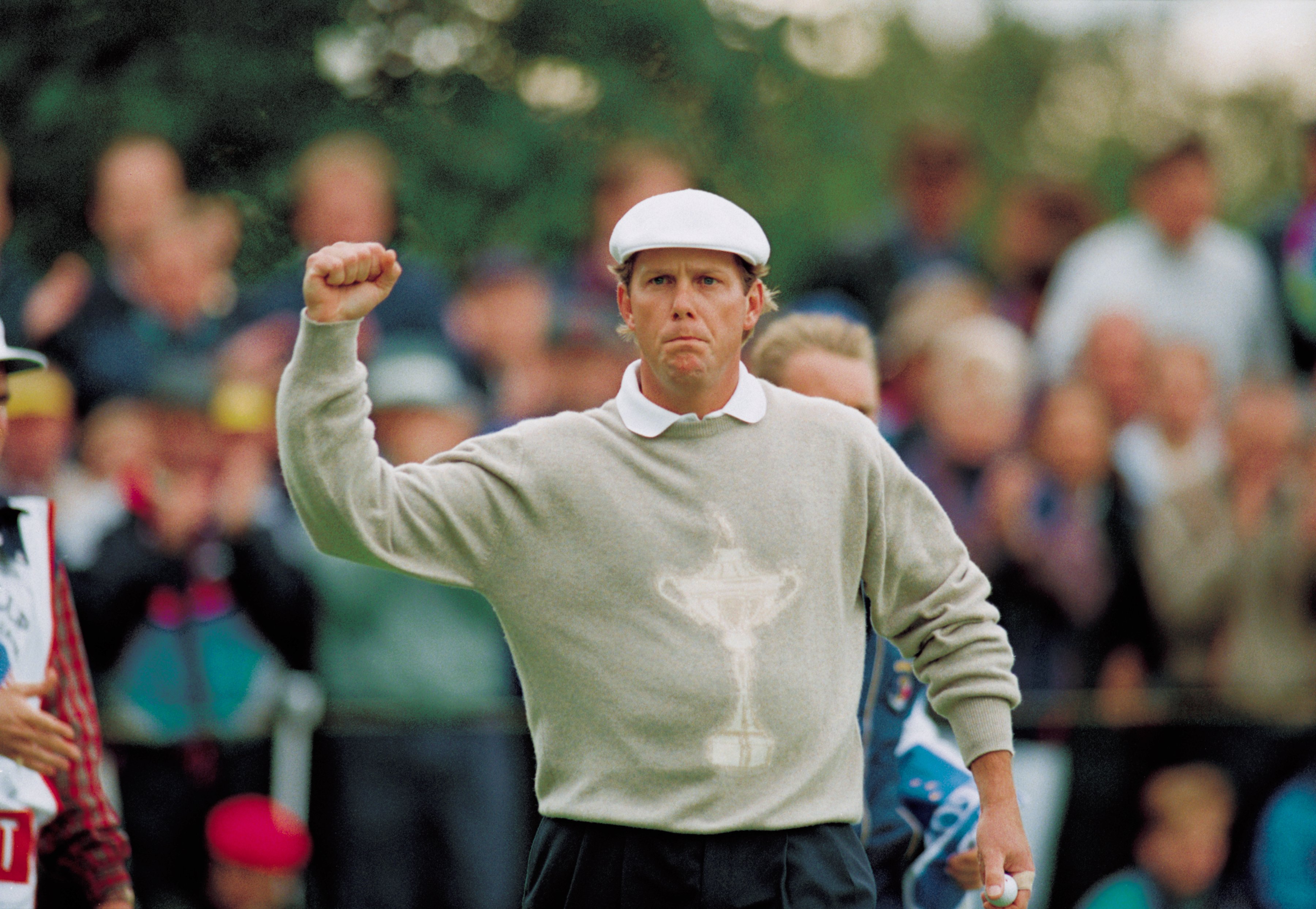
There was an act of great sportsmanship that often gets forgotten when looking back at the ‘Battle of Brookline’. During the 1999 contest, Justin Leonard holed a huge putt on the 17th green in his singles match against Jose Maria Olazabal, which prompted a big invasion of the green by players, wives and caddies. Stewart and Colin Montgomerie were still playing their singles match, and throughout the afternoon the Scotsman was forced to endure quite a bit of abuse from American spectators. On the 18th green, Stewart picked up Montgomerie’s ball and conceded the point. In all, the flamboyant American played in five Ryder Cups, winning nine points.
TOM KITE
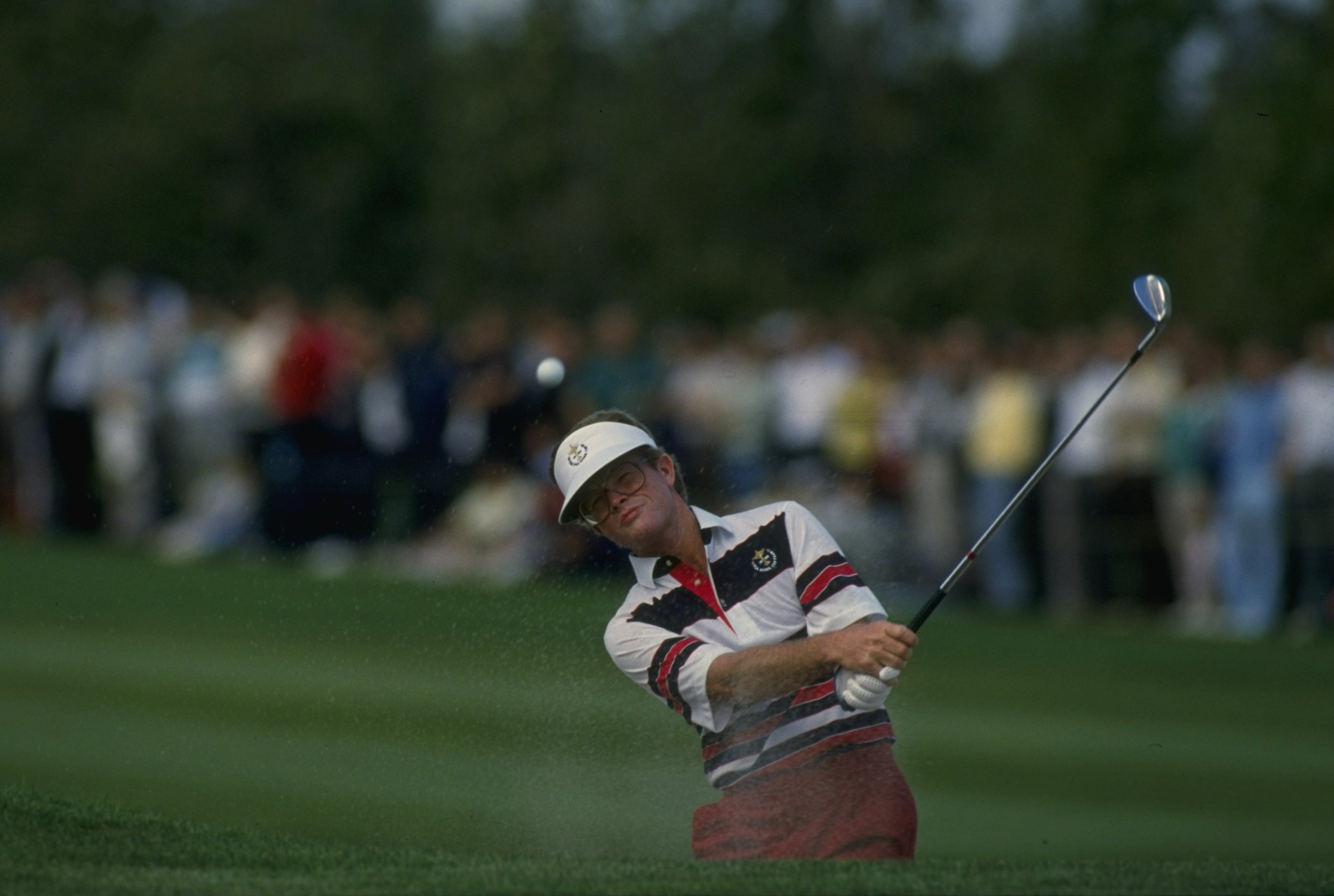
After making his first appearance in the 1979 contest, the man with the Panama hat racked up 17 points from his 28 matches, over seven Ryder Cups. The 1992 US Open winner made his sixth consecutive appearance in 1989, which was when he recorded a huge 8&7 singles victory over Howard Clark. The Texan had a particular liking for the singles, a format that he never lost in, recording five wins and two halves.
Christy O'Connor Sr

Christy O'Connor Sr was a true trailblazer for Irish golf. The World Golf Hall of Famer played in ten Ryder Cups between 1955 and 1973, competing in 36 matches and accumulating 13 points. Until Nick Faldo’s 11th and final Ryder Cup appearance at Valderrama in 1997, Christy’s record of 10 appearances had stood for 24 years. In 1957, the man from Knocknacarra, Co. Galway thumped Dow Finsterwald 7&6 for the winning point as GB&I claimed the trophy for the first time since 1933.
JULIUS BOROS
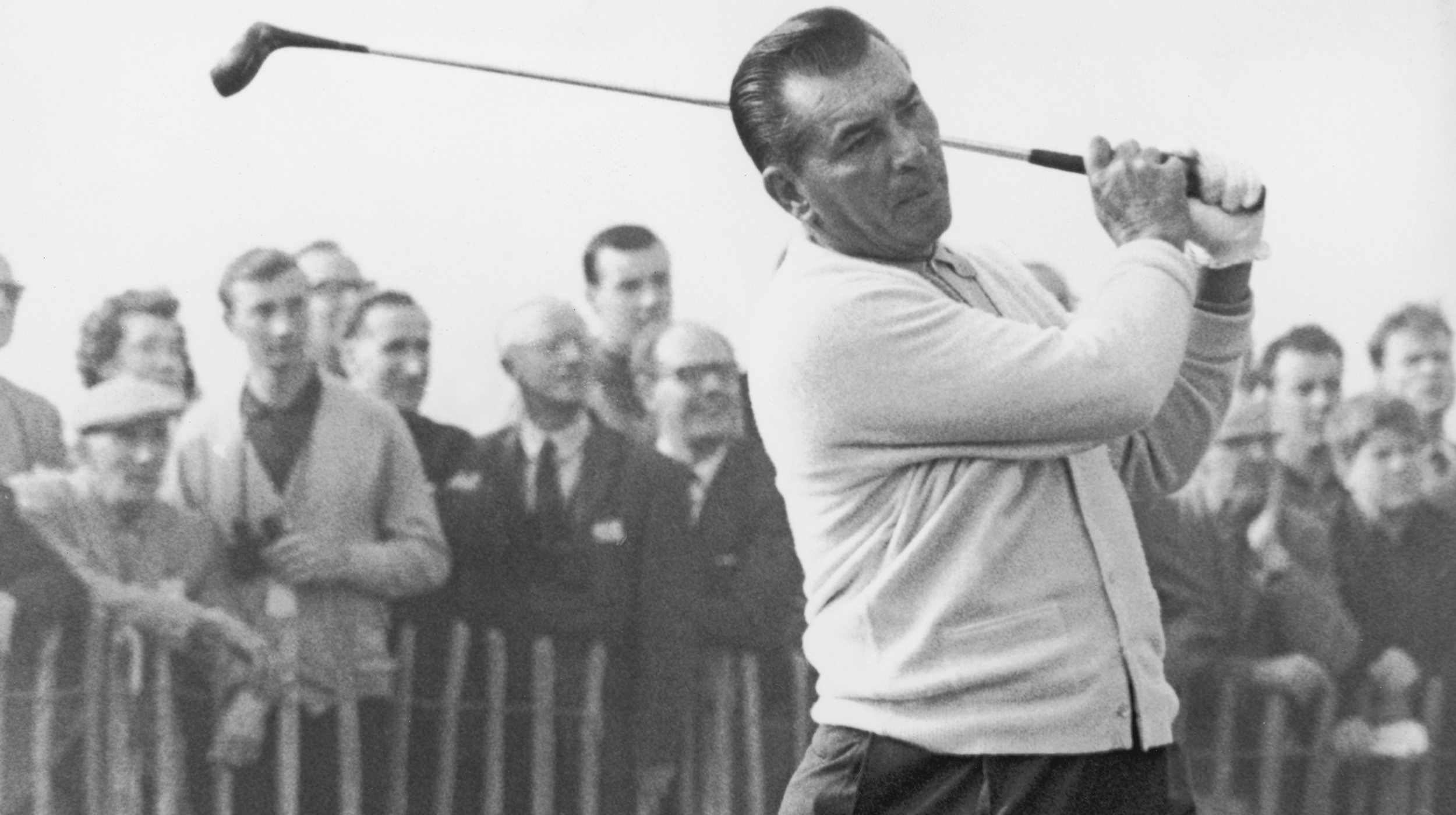
Julius Boros may not have turned professional until the age of 29, but he enjoyed a lot of success, both in Major Championships and in the Ryder Cup. He was also a player who picked up a number of big titles later in his career, including the PGA Championship in 1968, when he was 48 years old. In fact, he was the oldest player to win a Major before Phil Mickelson won the PGA Championship in 2021. He played in five Ryder Cups between 1950 and 1967 and won 11 points from his 16 matches.
GENE LITTLER
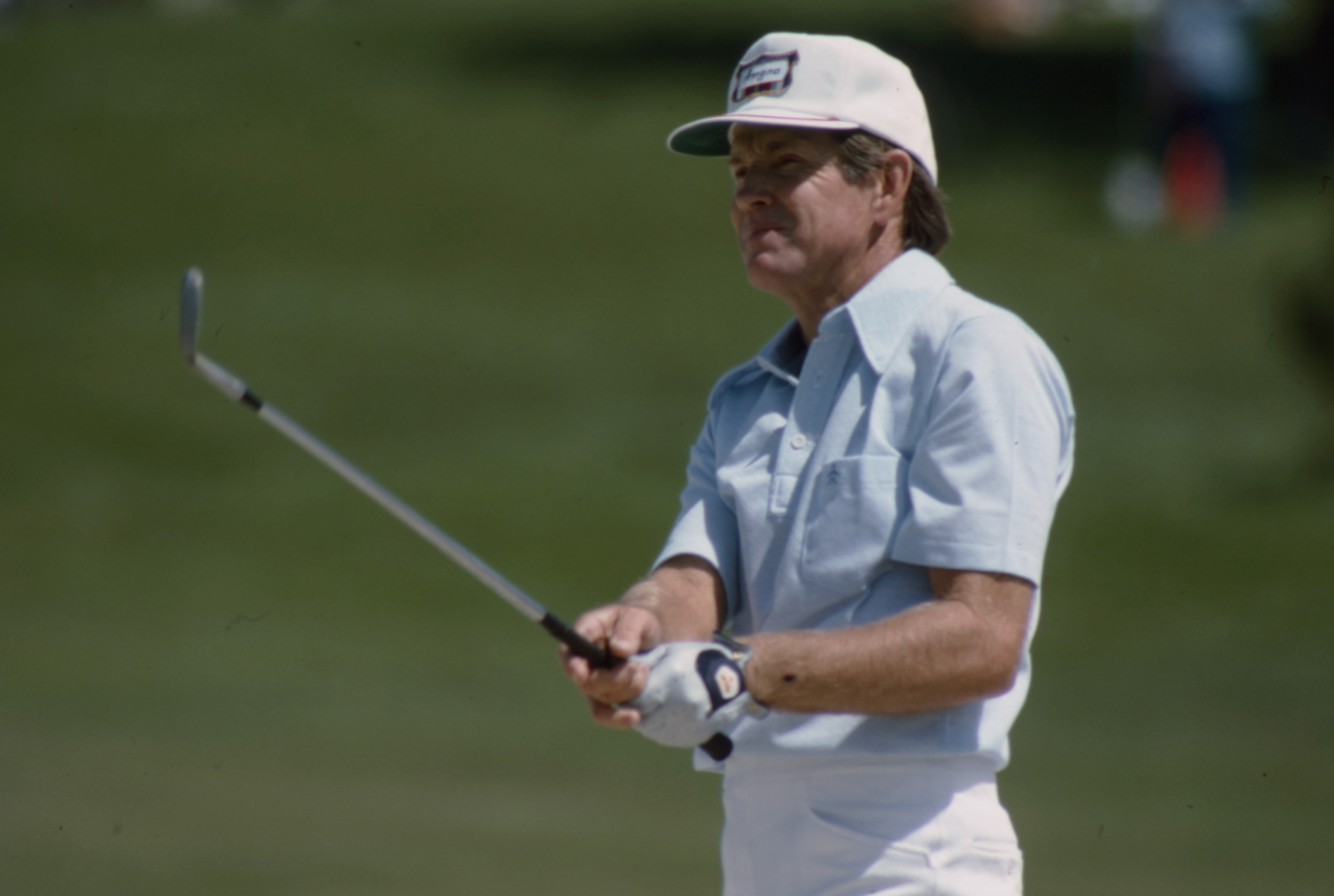
‘Gene the Machine’ served in the US Navy before turning professional in 1954. He was quite the force in matchplay – and you really didn’t want to draw him in the singles. The 1961 US Open champion played in seven Ryder Cups and 27 matches from 1961 to 1975, winning six. Six-and-a-half of his 18 points matches came in the singles. His fourball record wasn’t too shabby, either, a format that he never lost (five wins and four halves).
NEIL COLES
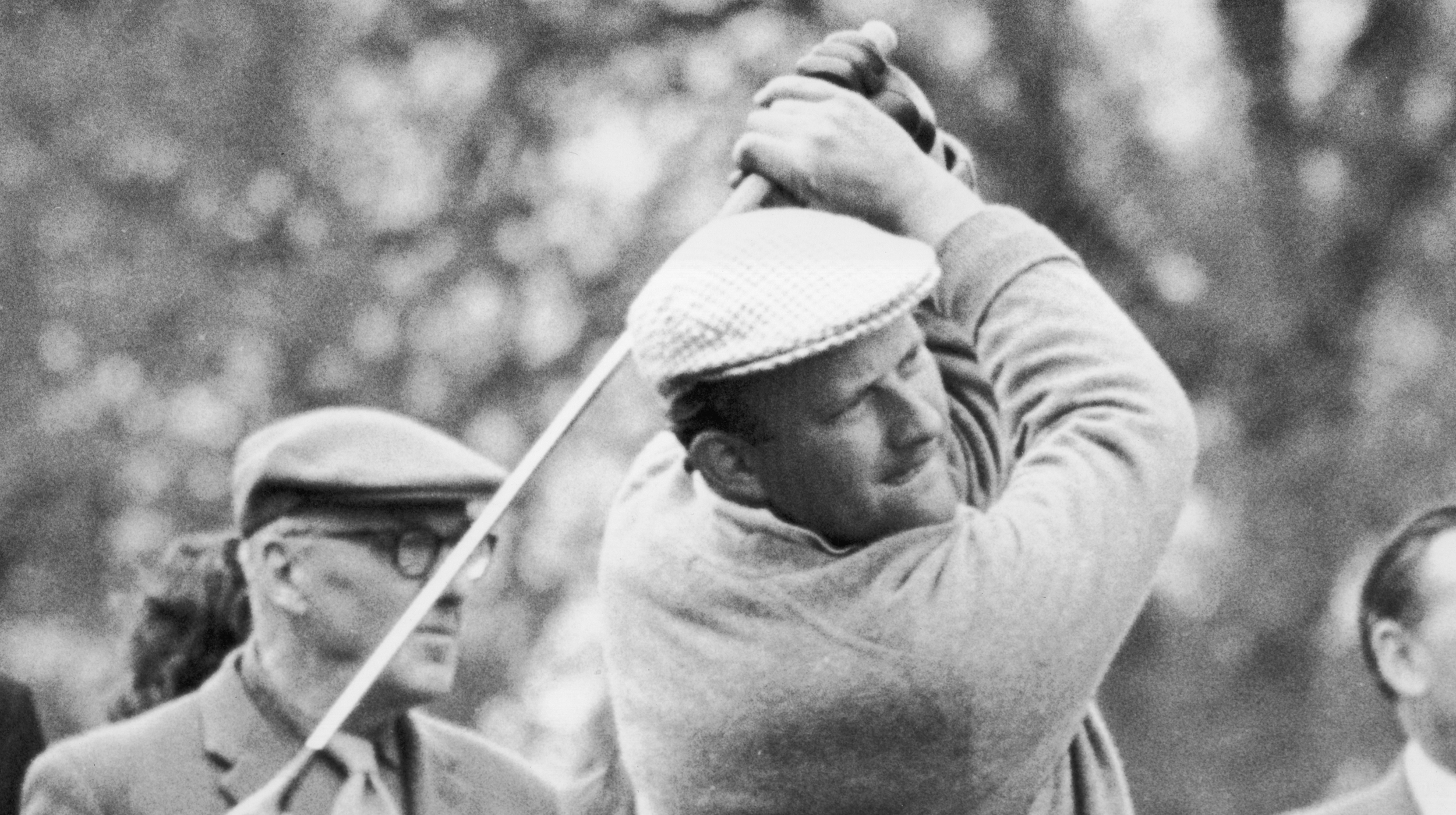
The Englishman was another of those players representing GB&I to come up against the formidable American sides of the 1960s and 70s. Although he made eight Ryder Cup appearances between 1961 and 1977, he never played in a winning GB&I team. However, during that time he did amass an impressive 40 matches and claim 15½ points. He also claimed a few big scalps in the singles, taking down Dow Finsterwald, Billy Casper, Tommy Aaron and Doug Sanders (twice).
ARNOLD PALMER
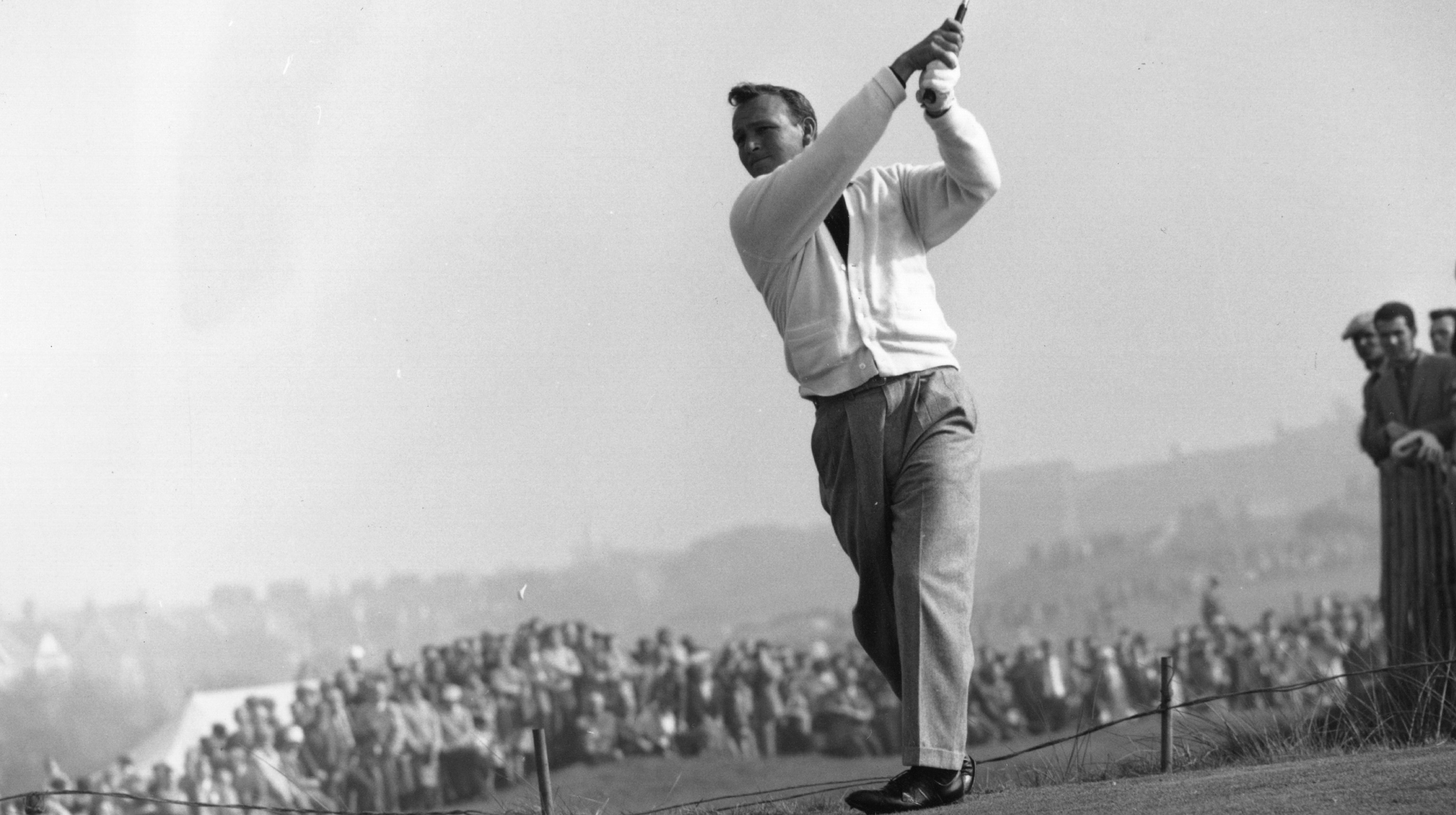
“I loved the Ryder Cup, because it wasn’t about playing for money. It was about playing for something far grander and more personal.” ‘Arnie’ may have loved the Ryder Cup, but his earliest experiences of the competition “were not of a happy nature”. Despite winning the 1958 Masters and nine other tournaments prior to that, the PGA’s rules stipulated that he had not been a member of the tour for long enough to have earned the privilege to play in the Ryder Cup. Palmer made his debut in 1961 at Royal Lytham & St Annes, contributing three-and-half points to America’s winning score of 14. He finished up with a total of 23 points.
LANNY WADKINS
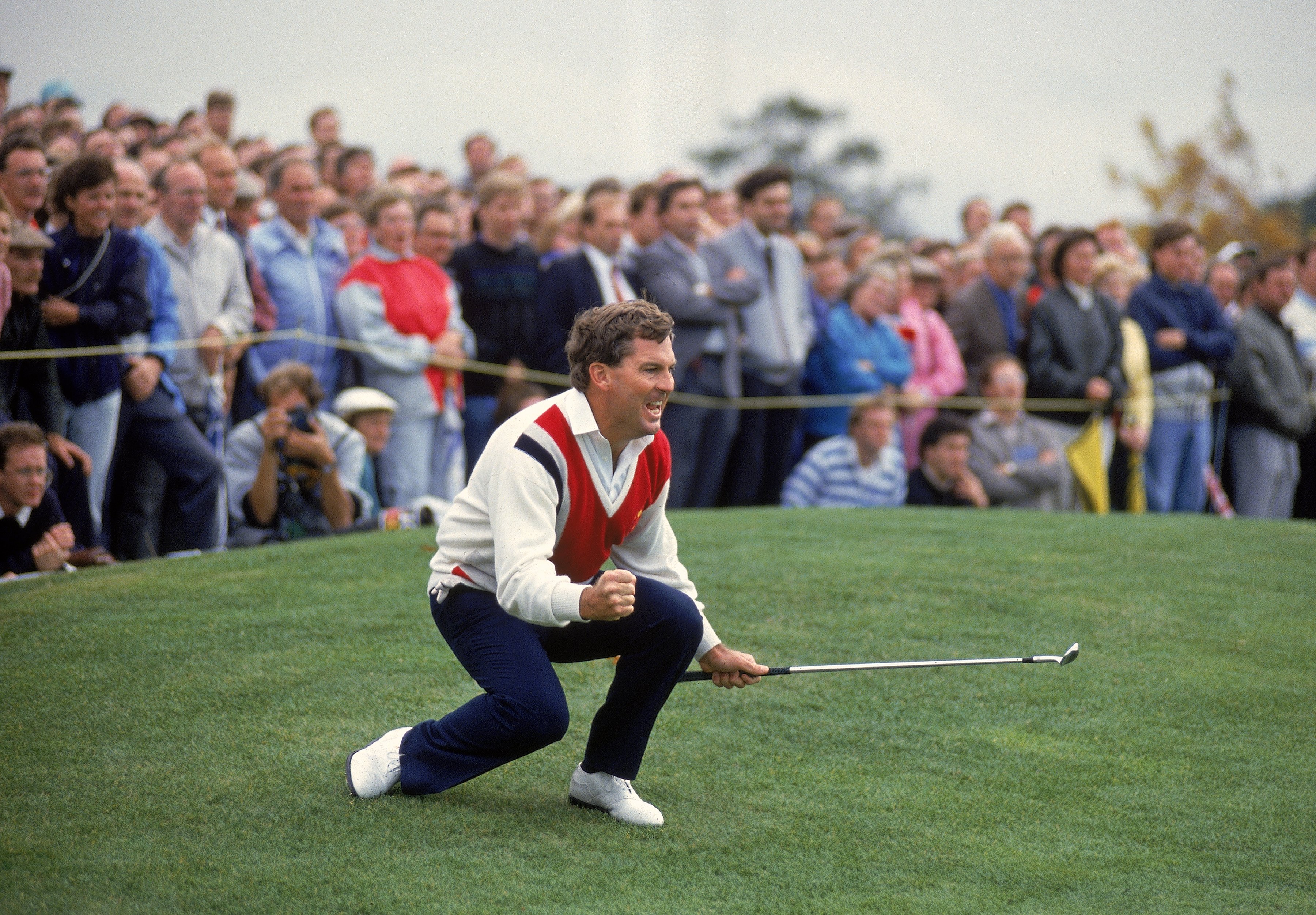
“It’s different now. Guys are soft. Guys like me and Hale Irwin and Raymond Floyd, we were mean. We were junkyard dogs.” This was not the kind of player you really wanted to come up against, not unless junkyard dogs brought out the best in you. The Virginian would be in any conversation around the Ryder Cup’s top 10. The 21-time PGA Tour winner played in eight Ryder Cups, and can boast a pretty decent points percentage (63%) – 21½ points from 34 matches.
BILLY CASPER
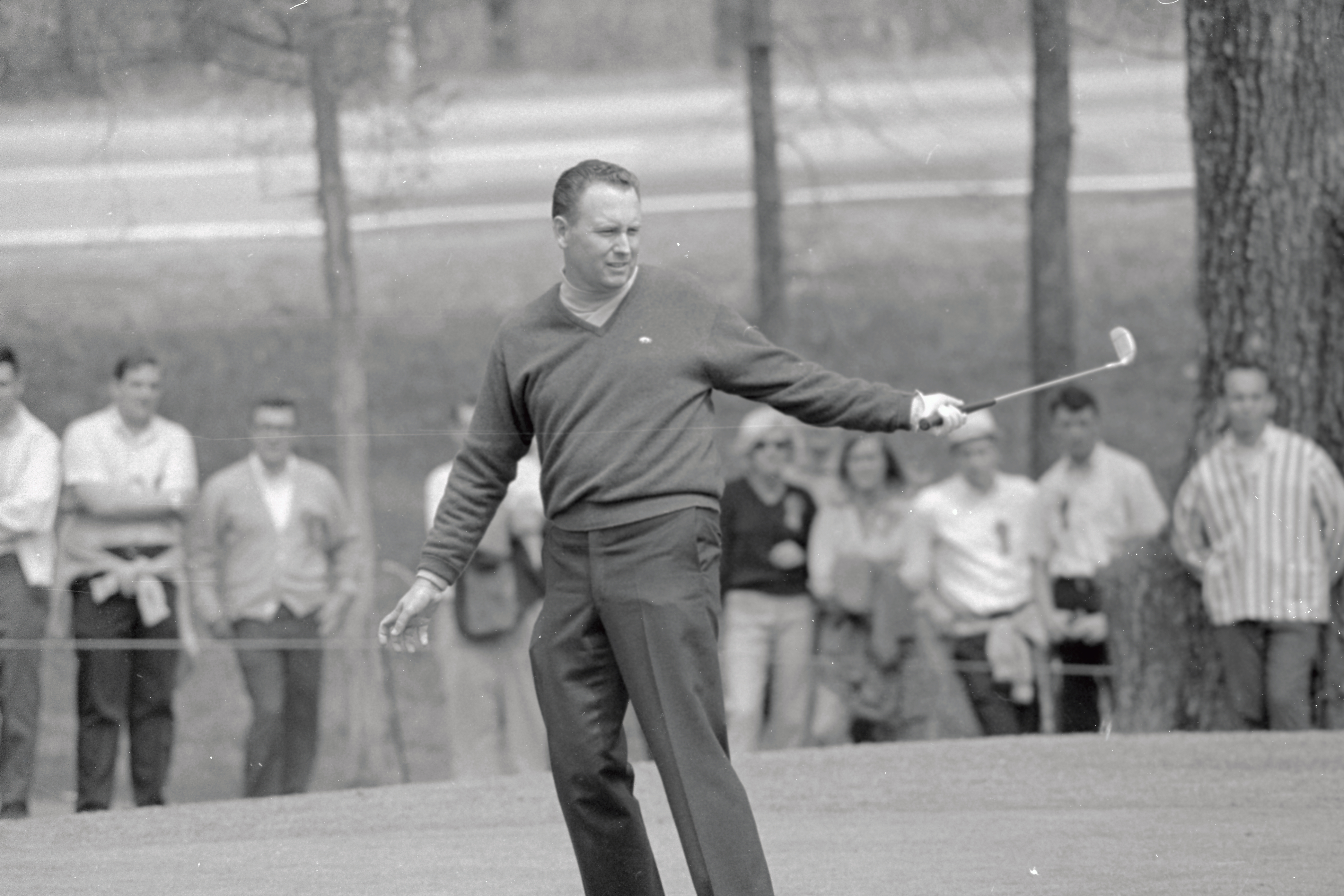
Casper never tasted Ryder Cup defeat – not once in eight consecutive appearances between 1961 and 1975. The three-time Major champion even captained a winning side in 1979. He won a total of 20 matches from the 37 that he contested and racked up 23½ points, which includes six singles victories. True, he played in an era of imbalance between the teams, but we’re not going to mark William down for that.
HALE IRWIN
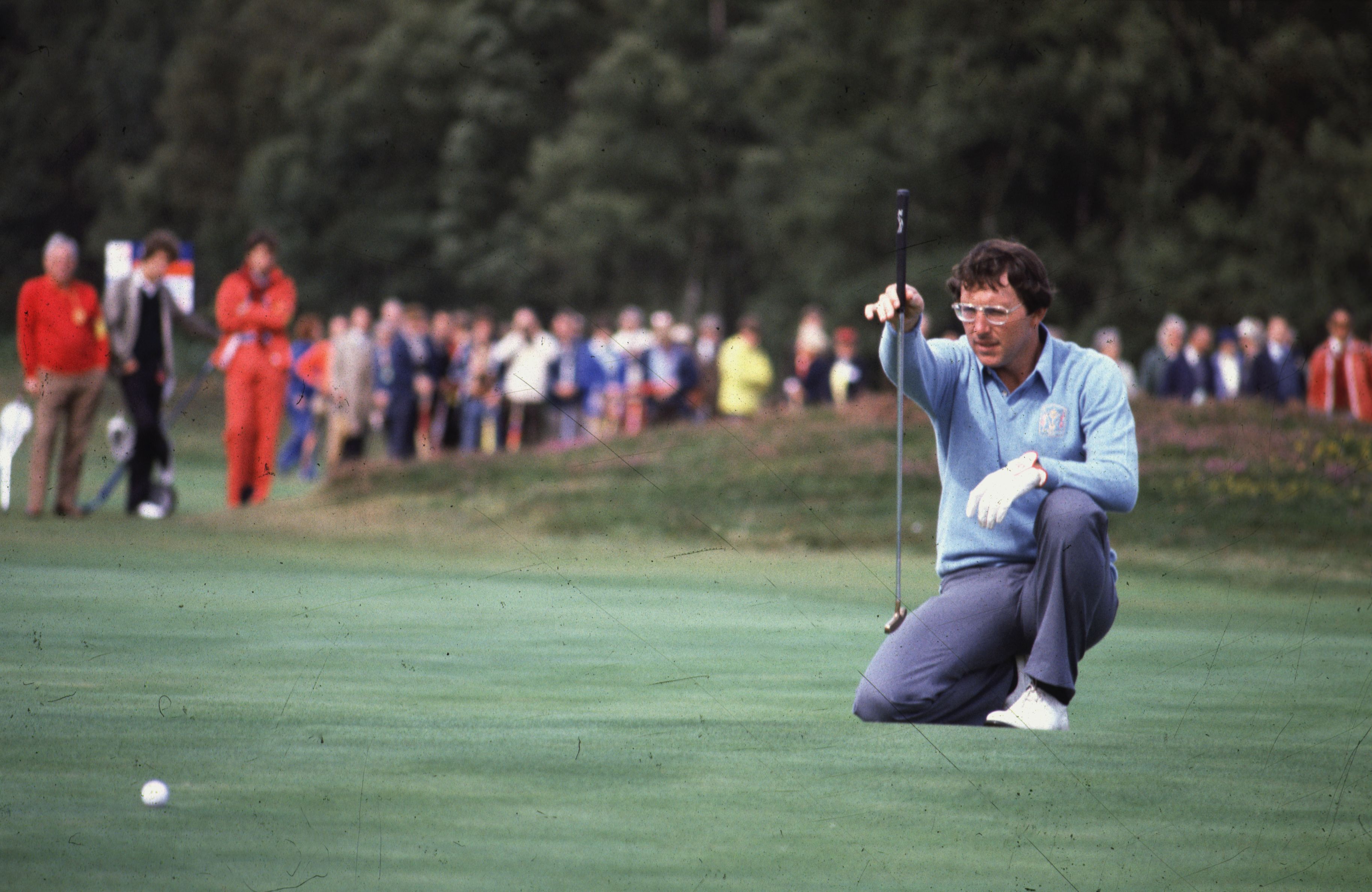
The three-time US Open champion was “mean”, a “junkyard dog”. Lanny Wadkins’ words, not ours. Of course, it was meant as a compliment. In other words, Irwin was a fierce scrapper, a hard competitor. Irwin and Team USA were the beneficiaries of the six-footer that Bernhard Langer missed on the 18th green at Kiawah Island in 1991. He may have been a “mean” competitor on the course, but Irwin and Langer became good friends off it. Irwin’s Ryder Cup return reads 14 points won from 20 matches played.
SERGIO GARCIA
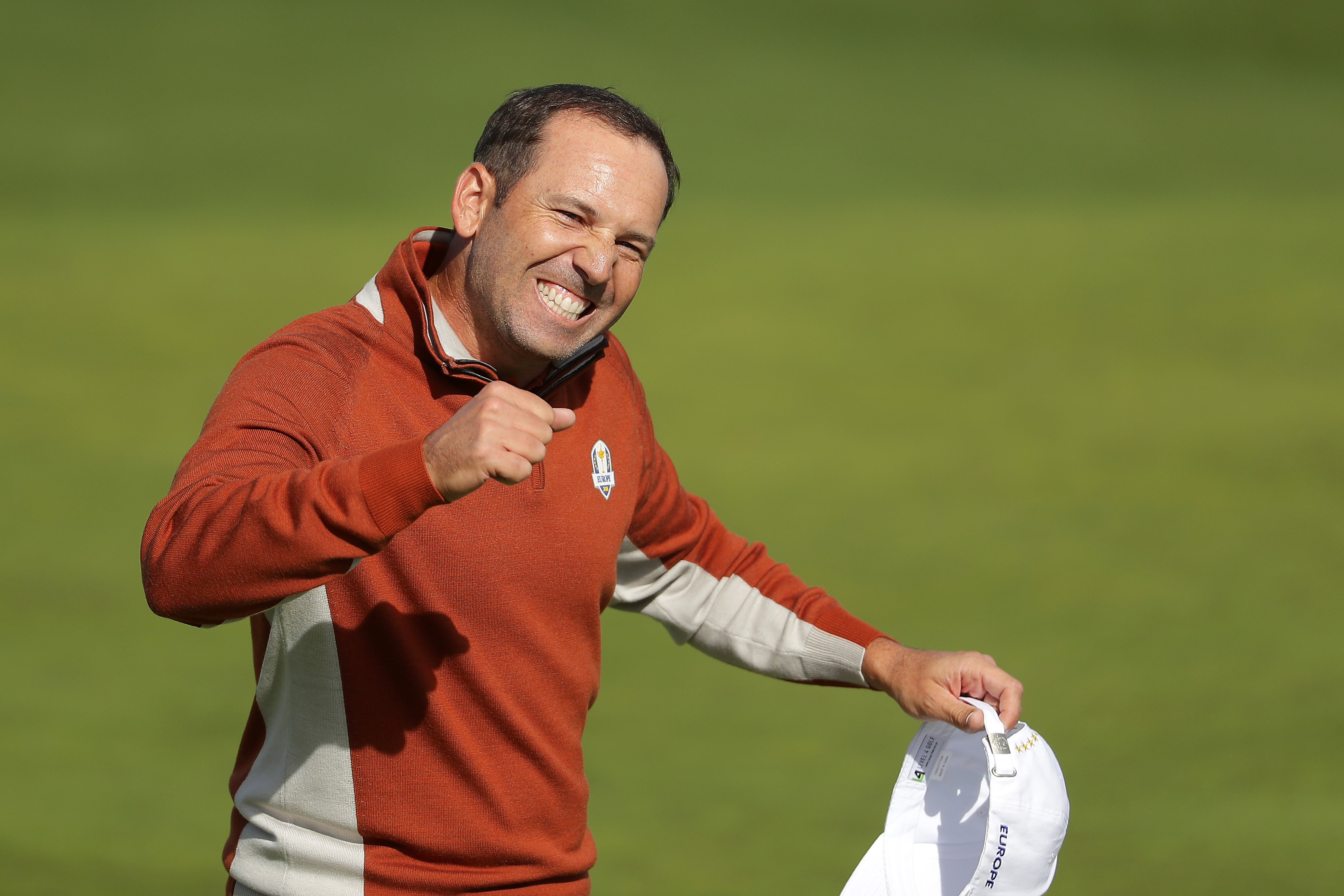
The charismatic Spaniard made his Ryder Cup debut in 1999, and he’s been accumulating points at a decent rate ever since. In 2006, he won all four points from his foursomes and fourball matches, and in 2018 he overtook Nick Faldo’s record as Europe’s leading points scorer. Garcia was made for matchplay and, much like fellow Spaniard Seve did, has always brought unquestionable passion and fire to the event, often producing the best version of his game whenever the contest is played.
PETER OOSTERHUIS
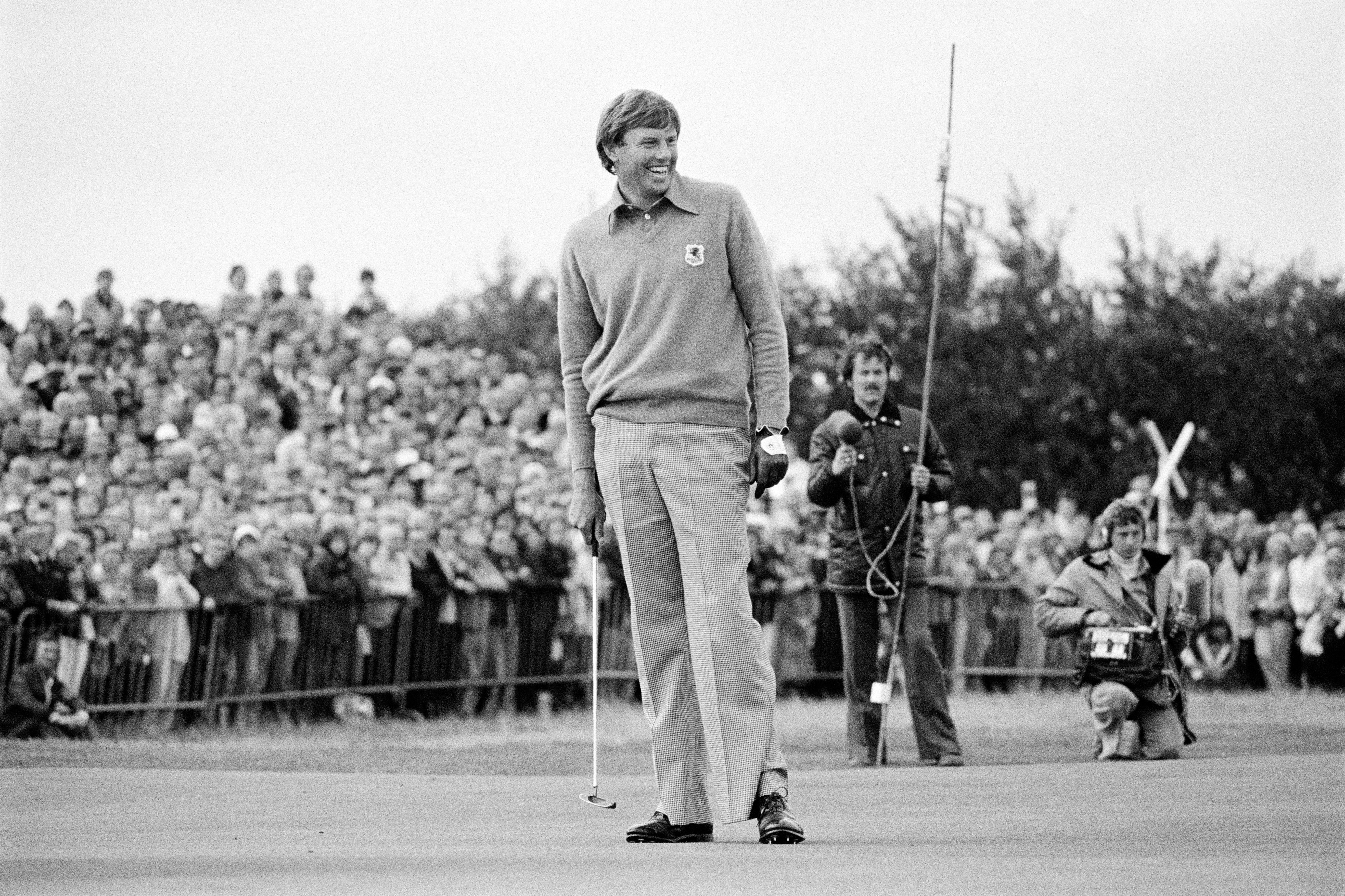
Peter Oosterhuis made six Ryder Cup appearances between 1971 and 1981. America was dominant during these years and ‘Oostie’ never did get to taste victory. However, to win 15½ points from his 28 matches during an era of so many strong American players proves just how good a performer the Englishman was. In the 1973 contest, he played Lee Trevino. The American told his teammates, “If I don't beat Oosterhuis, I'll come in here and kiss your butts.” Oosterhuis claimed a half.
RORY MCILROY
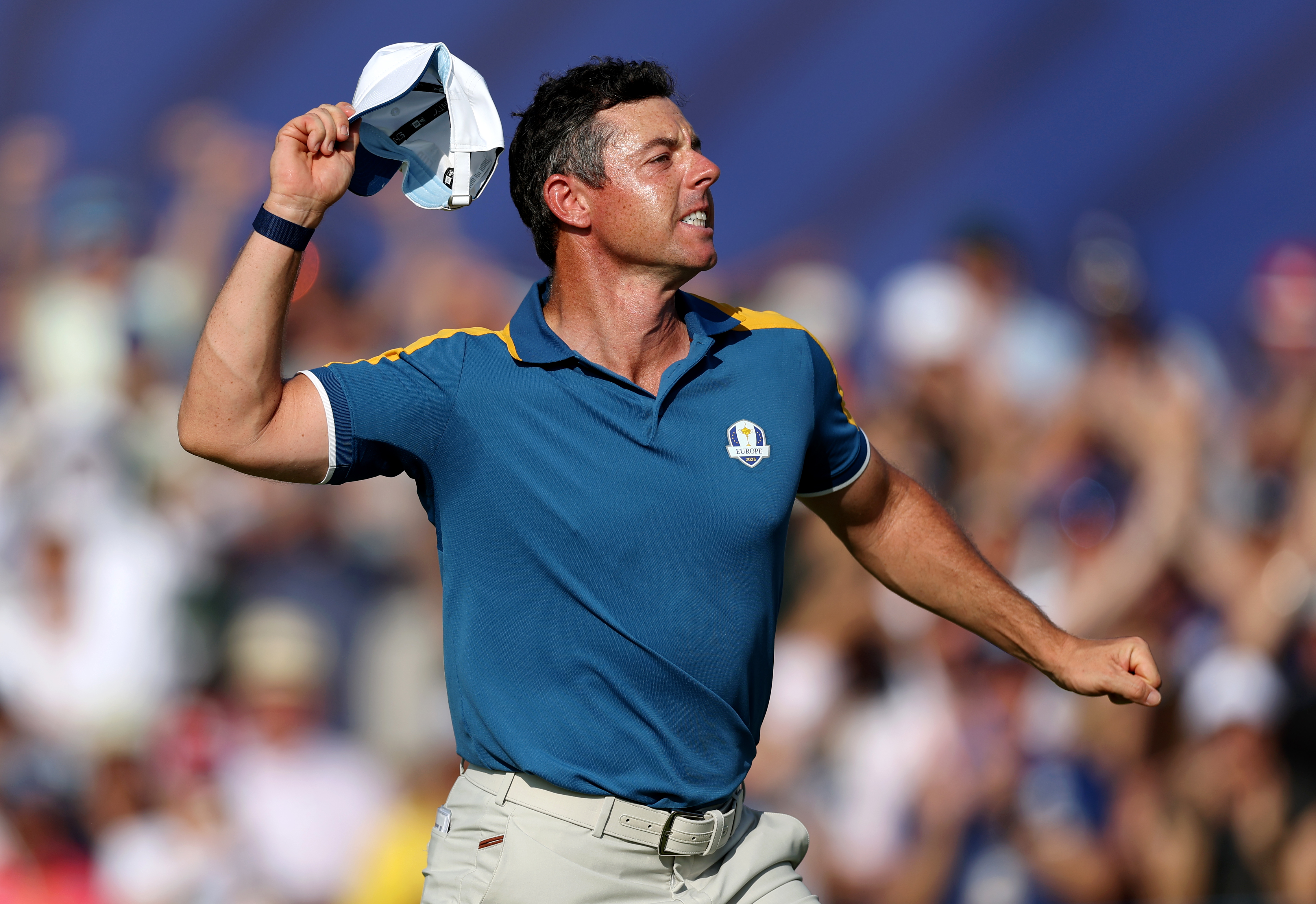
Europe’s talisman has often been that scalp that every American player has wanted, and more often than not he’s been able to carry that expectation and deliver on the greatest stage. The man from Holywood, County Down, made his Ryder Cup debut at Celtic Manor at 2010 and managed to get underneath the skin of a certain Tiger Woods with one or two remarks. At the 2023 contest in Rome, he used an incident with Patrick Cantlay’s caddie, Joe LaCava, to fire him up the following day. Don’t ever make Rory mad.
TOM WATSON
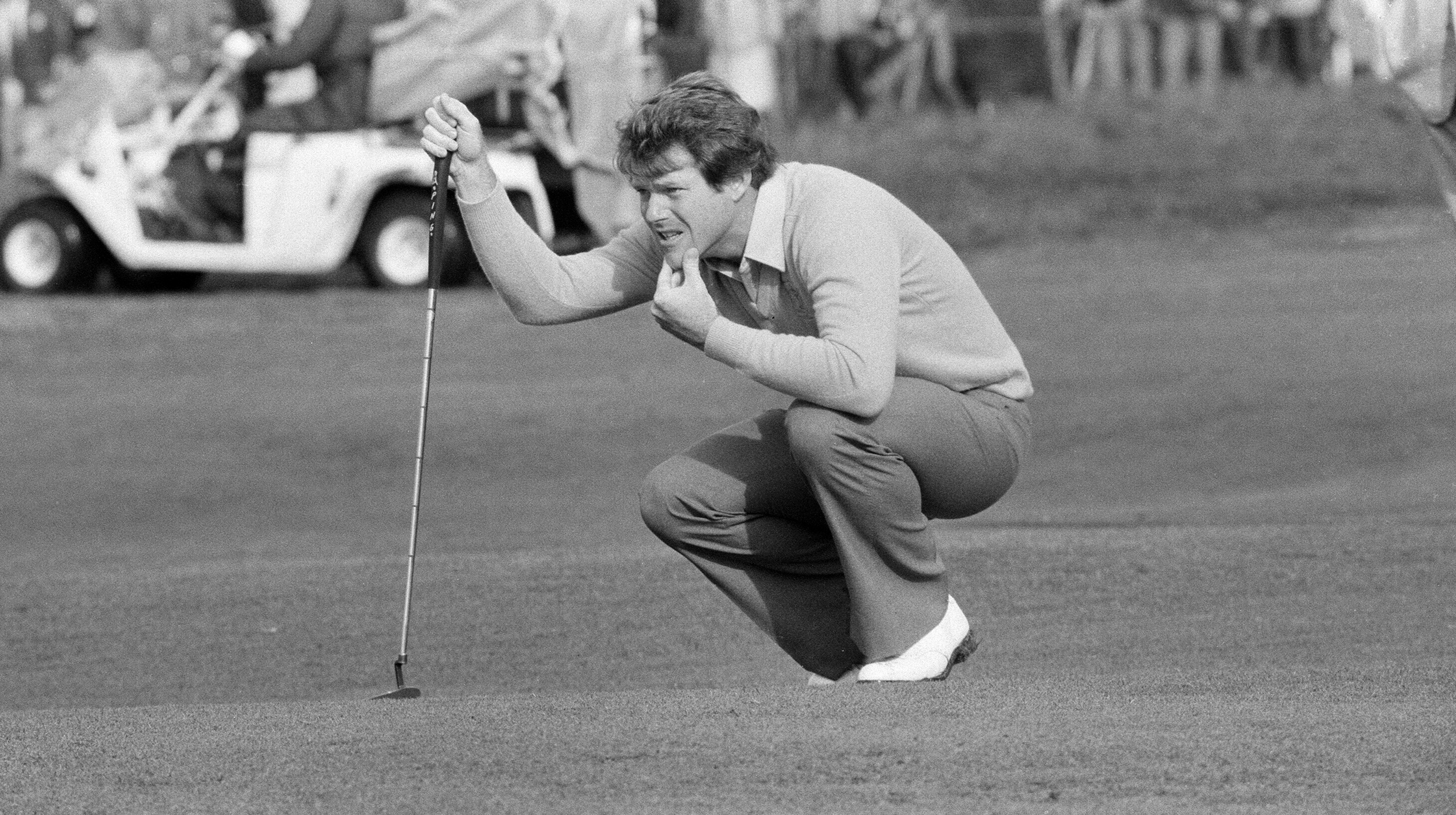
Watson was a slightly controversial pick as the 2014 US Ryder Cup captain, mostly because he was perceived to have been out of touch with the PGA Tour players. Europe handed the Americans a bit of a thumping in Scotland and Watson came in for a fair bit of criticism, but we should remember him more for the good times he had at the Ryder Cup, of which there were many. In all, he played in 15 matches, winning 10. A 70% points percentage over four Ryder Cups is mightily impressive.
TONY JACKLIN
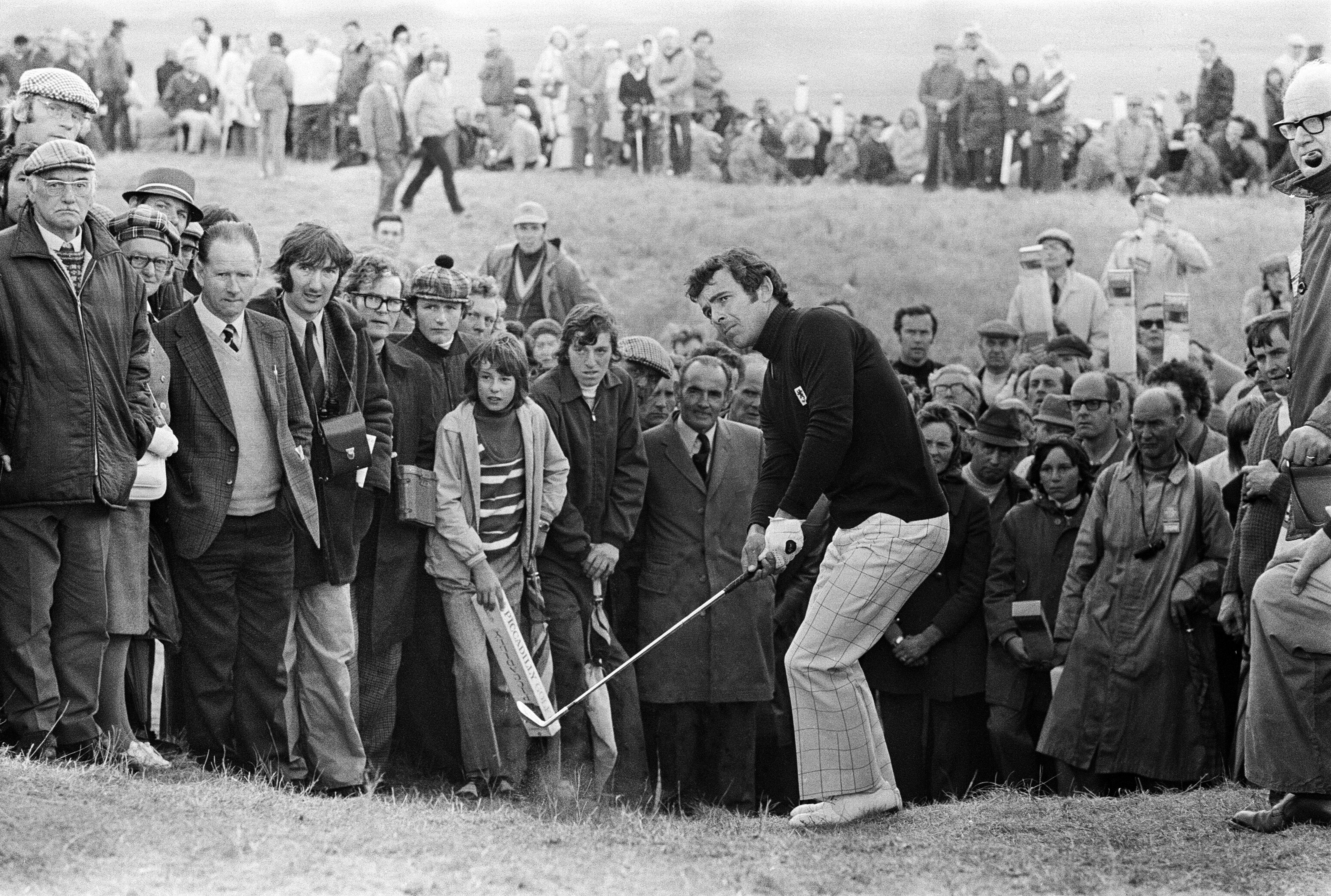
Tony Jacklin changed the Ryder Cup forever. A mainstay player for GB&I, he went on to transform the performances of Europe in the Ryder Cup. In all, the two-time Major champion played in seven consecutive Ryder Cups from 1967 to 1979, taking 17 points from his 35 matches. Jacklin was also involved in one of the most memorable moments in the history of the biennial showdown, the first ever tie in 1969. Jack Nicklaus, who was then a Ryder Cup rookie, gave Jacklin a short par putt on the 18th hole in their singles encounter, halving their match and the overall competition.
BERNARD GALLACHER
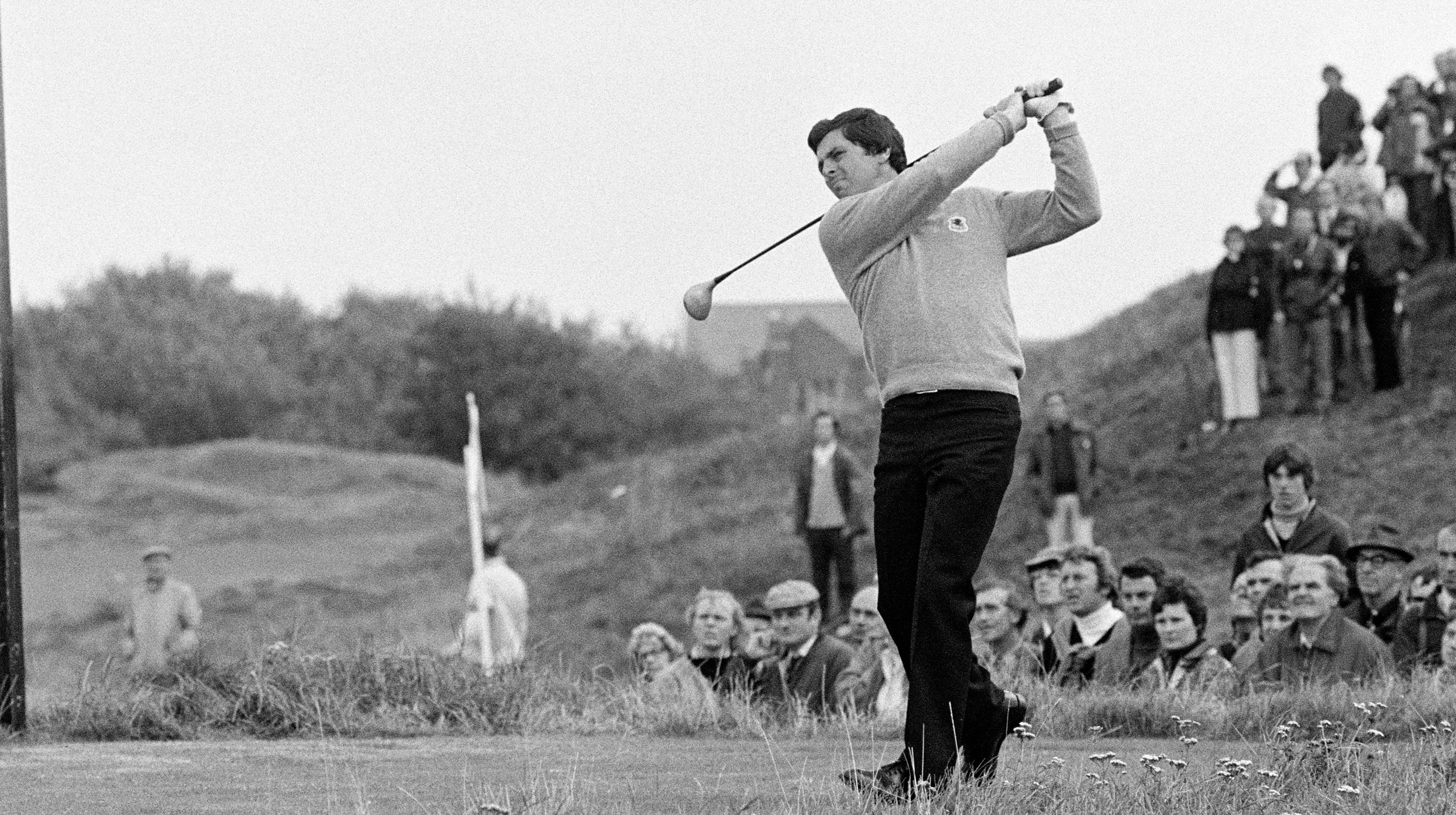
The Scot made his debut in the famous tied contest at Royal Birkdale in 1969, where 17 of the 32 matches went to the last hole. He went on to play another seven straight, winning a total of 15½ points for Europe from 31 matches. He never got to experience that winning feeling in the event as a player, and even had to be replaced shortly before his tee time in 1973 after he contracted food poisoning. Even so, his record is an impressive one. In 1995, he finally got the win that he deserved, captaining Team Europe to a narrow victory at Oak Hill Country Club in New York.
COLIN MONTGOMERIE
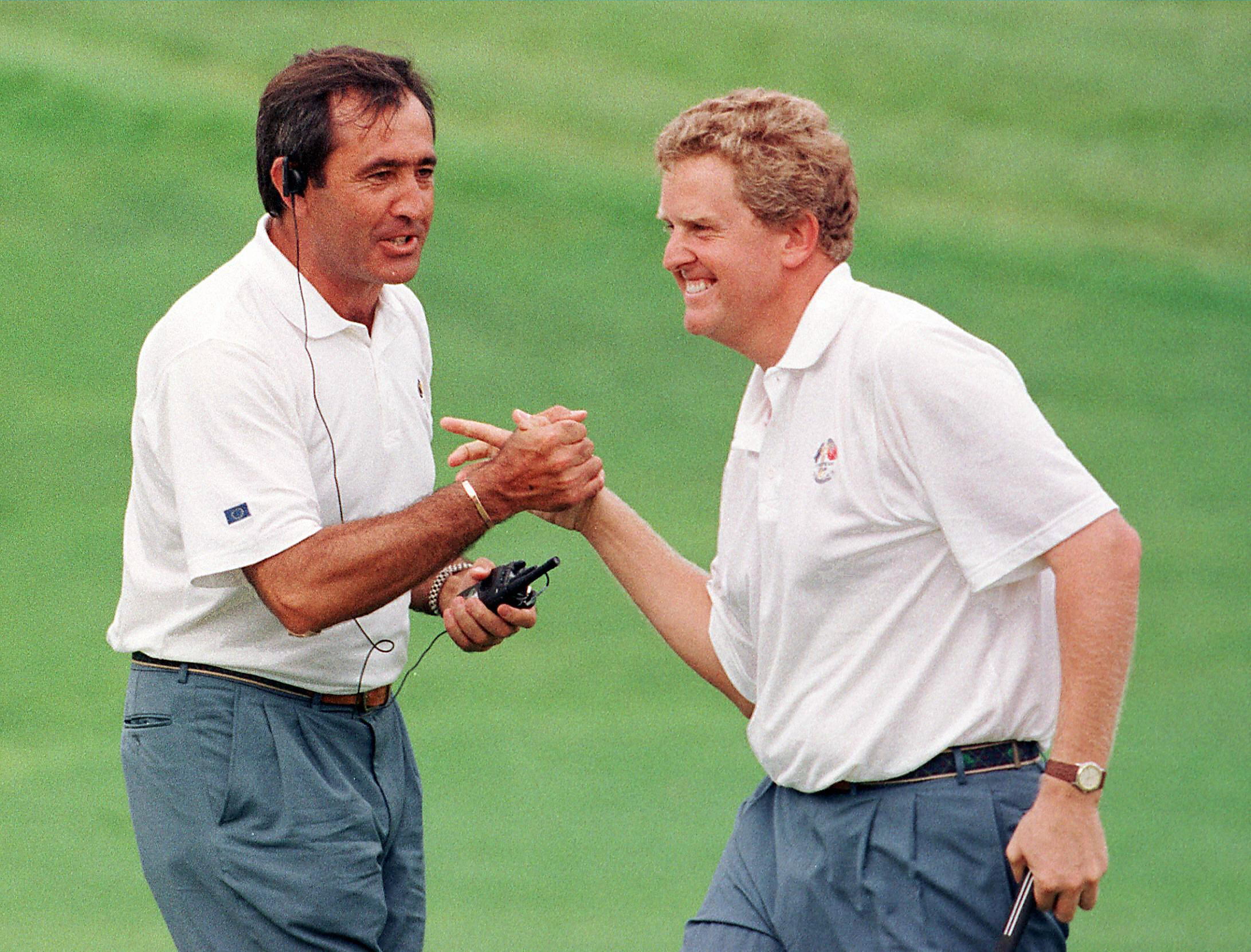
The first Ryder Cup to be played in continental Europe came in 1997 – and it went down to the final match. Europe entered the final day of singles with a five-point lead, but the pressure started to mount when the US began chipping away at the deficit. Captain Seve needed a couple of warriors to get him over the line. First, Bernhard Langer beat Brad Faxon to ensure Europe couldn’t be overtaken, and then ‘Monty’ halved his singles match with Scott Hoch, which secured a 14½-13½ victory. The Scot was Europe’s top scorer in Valderrama with three-and-a-half points. Add another 20 to that number and you have Montgomerie’s total contribution to Team Europe.
JACK NICKLAUS

When talking about the greatest player of all time, which really just concerns two players – Nicklaus and Woods – should you throw Ryder Cup records into the mix? If so, it’s another tick in the Nicklaus column. Woods has often struggled to take his very best form into the team event, whereas Nicklaus embraced it. With 18½ points, the ‘Golden Bear’ doesn’t sit at the top of the total points leaderboard, but it’s an impressive haul nonetheless. His notable concession to Tony Jacklin in 1969 was one of the Ryder Cup’s most sporting moments.
José Maria Olazábal

Europe had never won on American soil prior to the 1987 contest at Muirfield Village. At the end of this one, however, Olazábal was doing his little victory dance on the 18th green. Olazábal loved the Ryder Cup every bit as much as his great friend, Seve, and it showed when they played together. The Spanish pair teamed up 15 times together, winning 12 points. It was a partnership that started at Muirfield Village and thrilled European golf fans for many years.
NICK FALDO

Sir Nick might not have won too many people over with his captaincy of the European side at Valhalla in 2008, but no one can question his playing record – he was a rock. The six-time Major winner played in 11 Ryder Cups on the spin between 1977 and 1997 and accumulated a very healthy return of 25 points for the yellow and blue. One of his many highlights was the hole-in-one at the Belfry in 1993. His ace at the 14th came against one of his greatest rivals, Paul Azinger.
SEVE BALLESTEROS
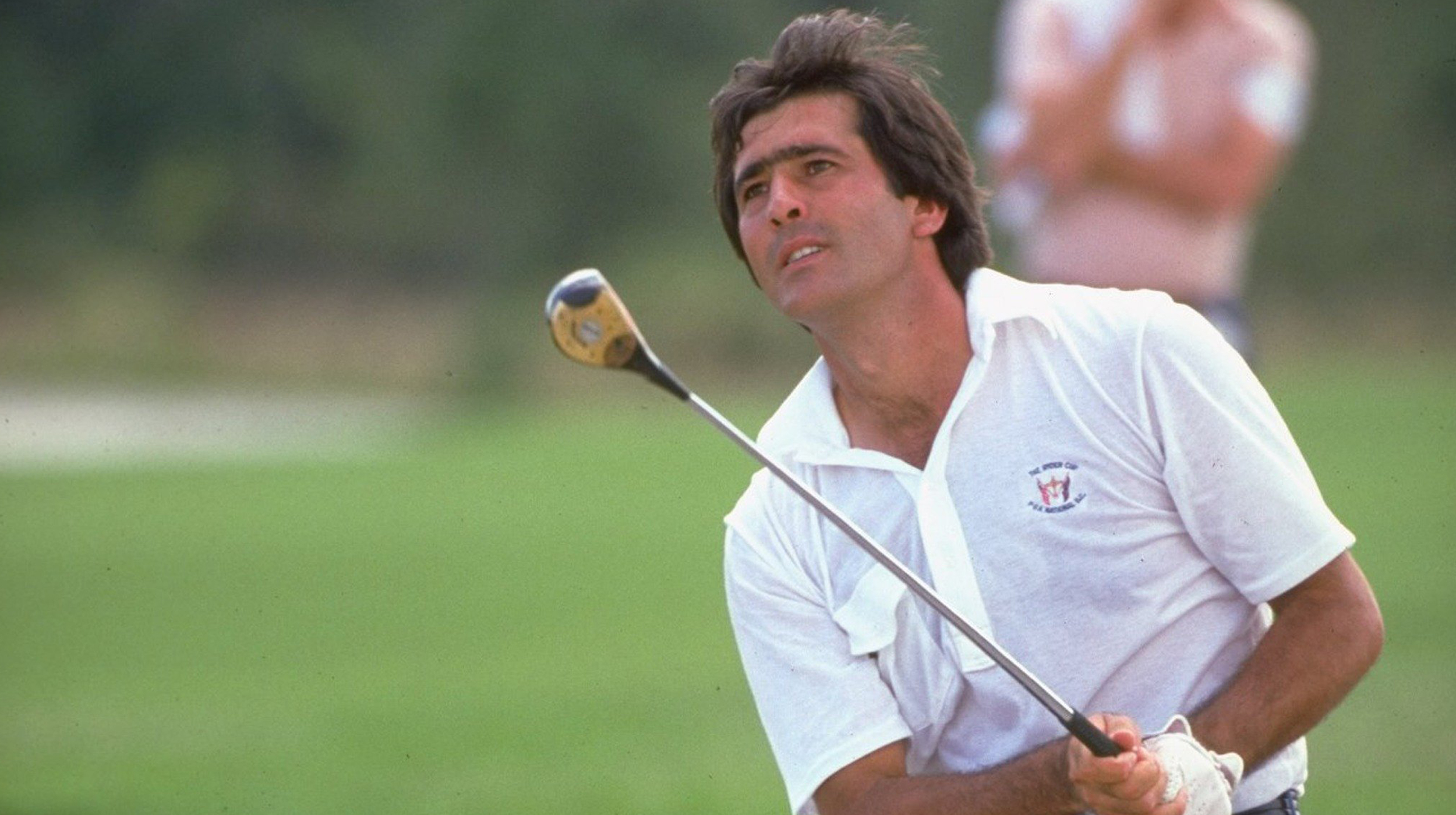
There are many images that spring to mind when you think of Seve, including a number of iconic Ryder Cup moments. The Spaniard loved the Ryder Cup and he loved matchplay. Seve made his debut in the contest in 1979, which was when European players joined the fray and the balance of power shifted. He went on to play in eight Ryder Cups, his last coming in 1995, during which time he amassed 22½ points from 37 matches. Oh yes, and he also played what Jack Nicklaus described as “the greatest shot I ever saw” – a 3-wood out of a fairway trap some 245 yards from the 18th green at Palm Beach (1983) that just cleared the lip and avoided a water hazard. He halved the hole, obviously.
Raymond Floyd
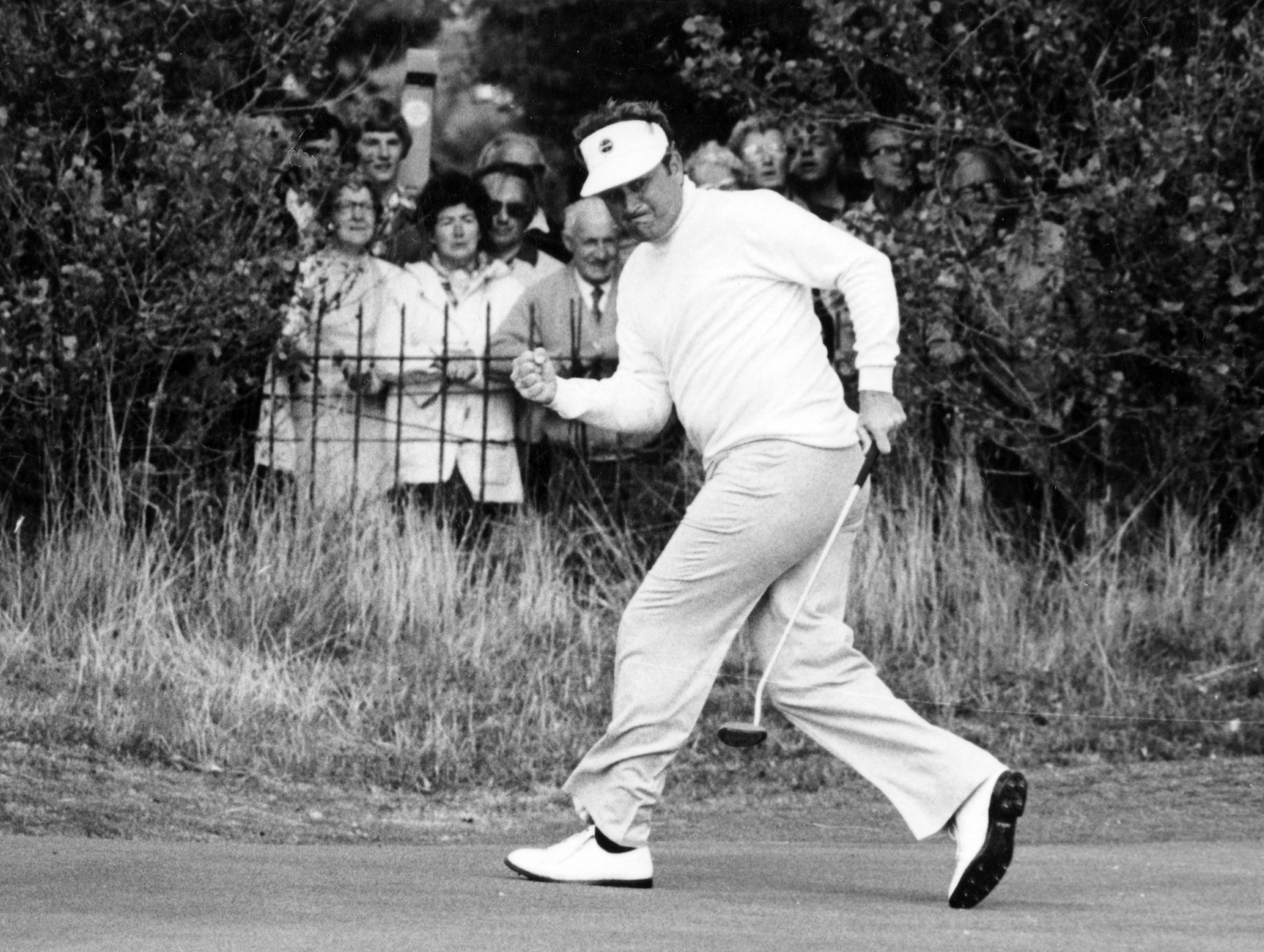
With four Major titles and 22 PGA Tour wins, the son of an Army man was another one of the US side’s “junkyard dogs”, as Lanny Wadkins once described him. It’s another way of saying he wouldn’t get too friendly when he was locked in battle – the Ryder Cup was serious business. The Hall of Famer played in eight Ryder Cups in four different decades (1969-1993) and won a total of 13½ points.
IAN POULTER
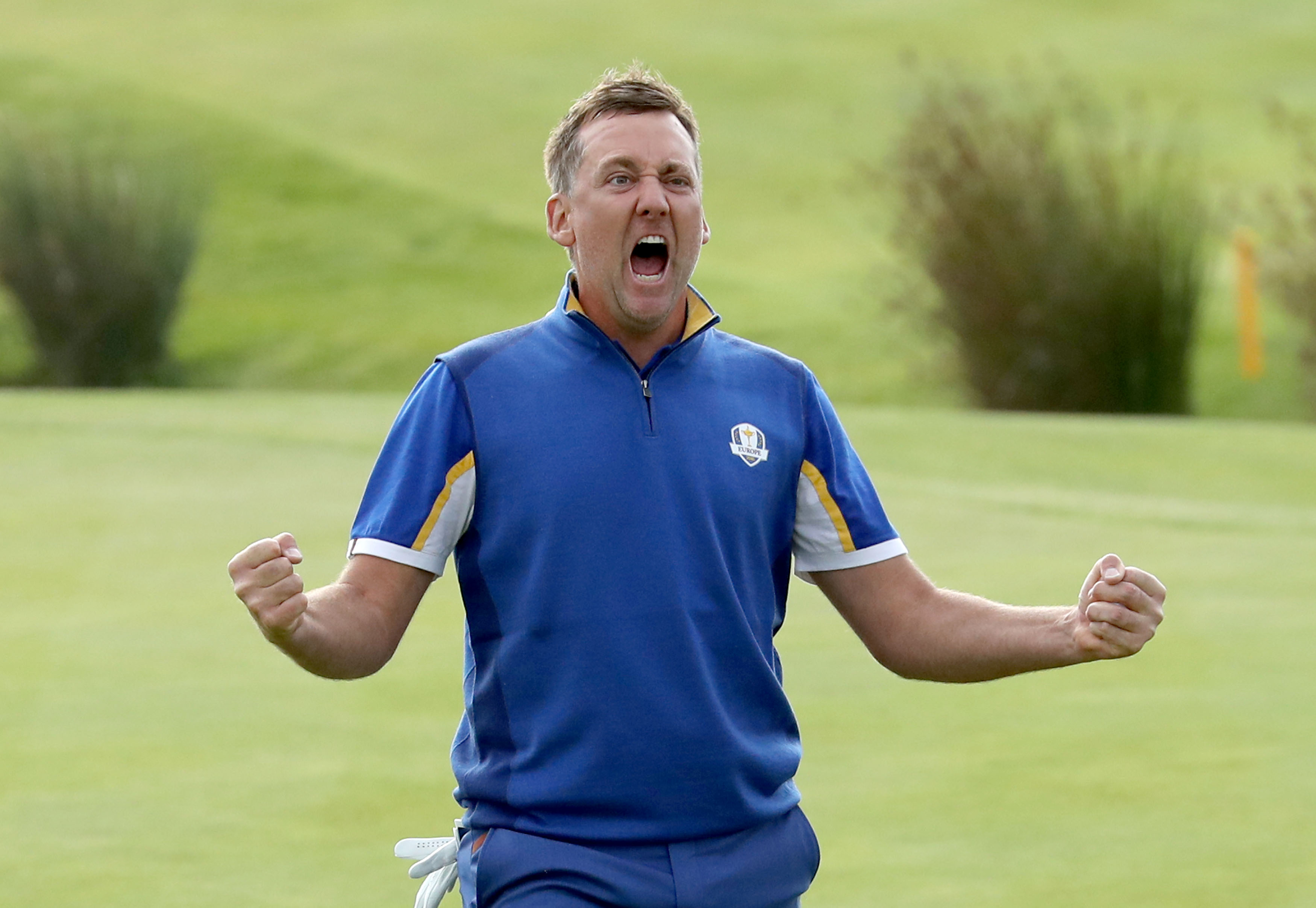
The ‘Postman’ has been a constant thorn in the Americans’ side. A player born for the intense head to head battles of a Ryder Cup, the Englishman has always relished the challenge and thrived in the pressure cooker environment that only this contest creates. In 2012, playing in the Saturday afternoon fourball matches with Rory McIlroy, Poulter produced a heroic finish with five consecutive birdies to earn the point that would give the team belief they could go on to win – and they did. He won all four of his matches that year.
LEE TREVINO
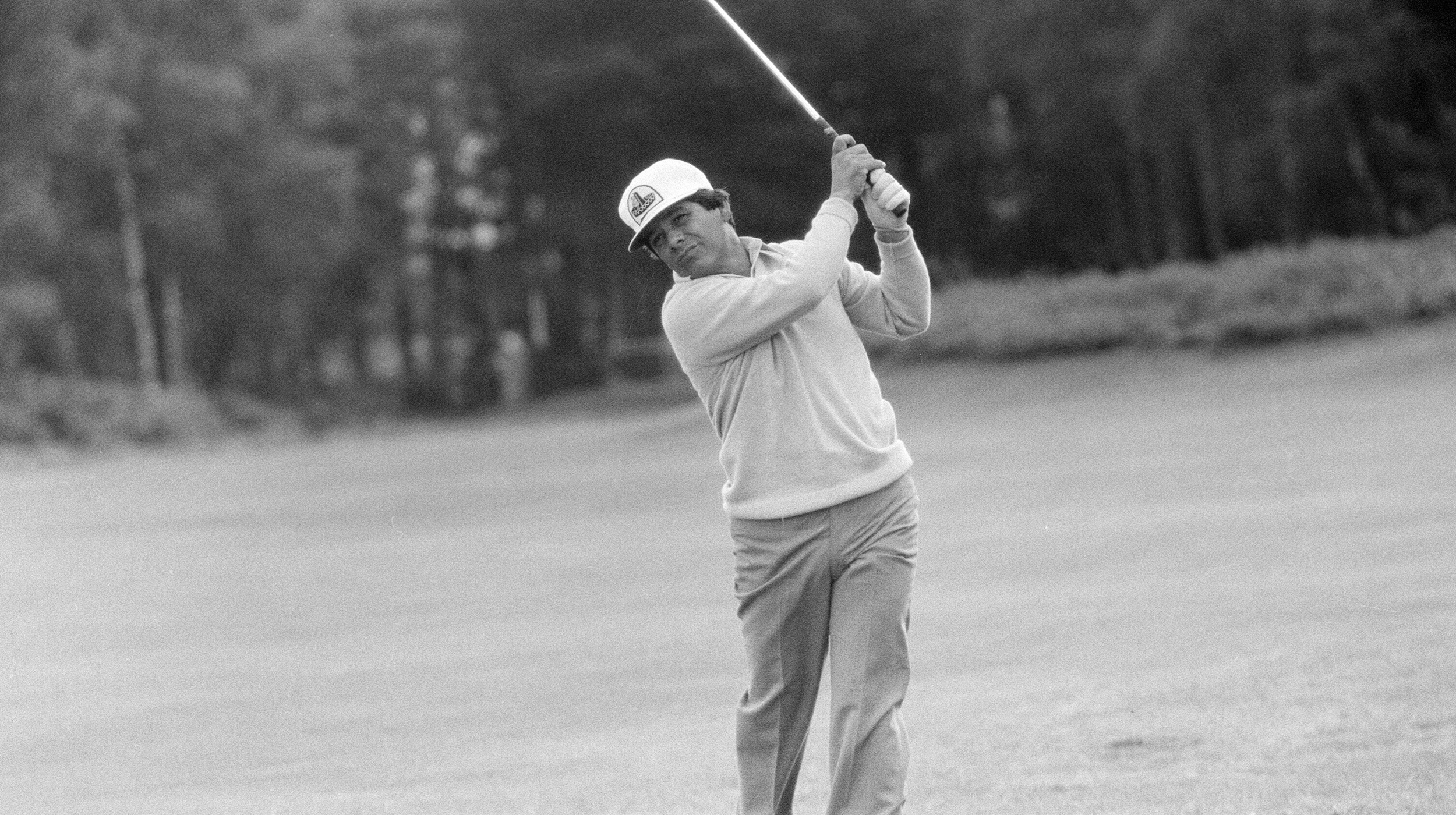
Trevino can boast a very healthy points percentage from his 30 matches – 20 from 30 played across six contests (65%). Put that alongside his six Major titles and 29 PGA Tour wins and you’re talking about one of the best players to have played the game. One of the 20 points that the Texan won for his country was a 7&6 victory over Brian Huggett in 1971. Playing alongside Jerry Pate at Walton Heath in 1981, he also won a fourball match 7&5 against Nick Faldo and Sam Torrance.
BERNHARD LANGER
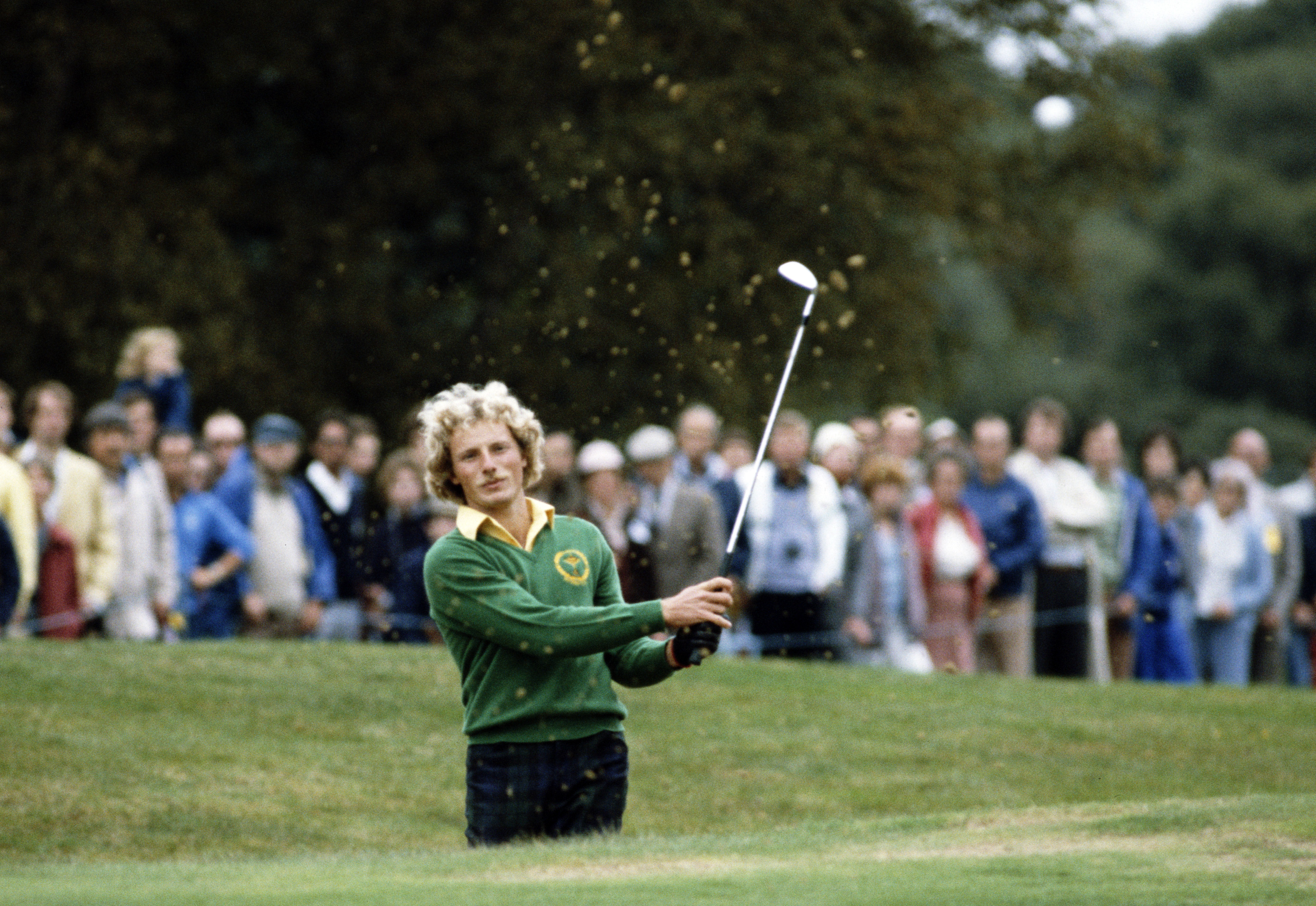
It’s a shame that the first memory of the great German where the Ryder Cup is concerned is often that missed putt at Kiawah Island in 1991. The competition came down to the final match on the final hole. Langer had a six-footer to win the hole. Had it dropped, Europe would have retained the Ryder Cup. The putt never touched the hole. Never mind all that. Langer is one of Europe’s best ever players. He made 10 Ryder Cup appearances and returned a whopping 24 points.
LEE WESTWOOD
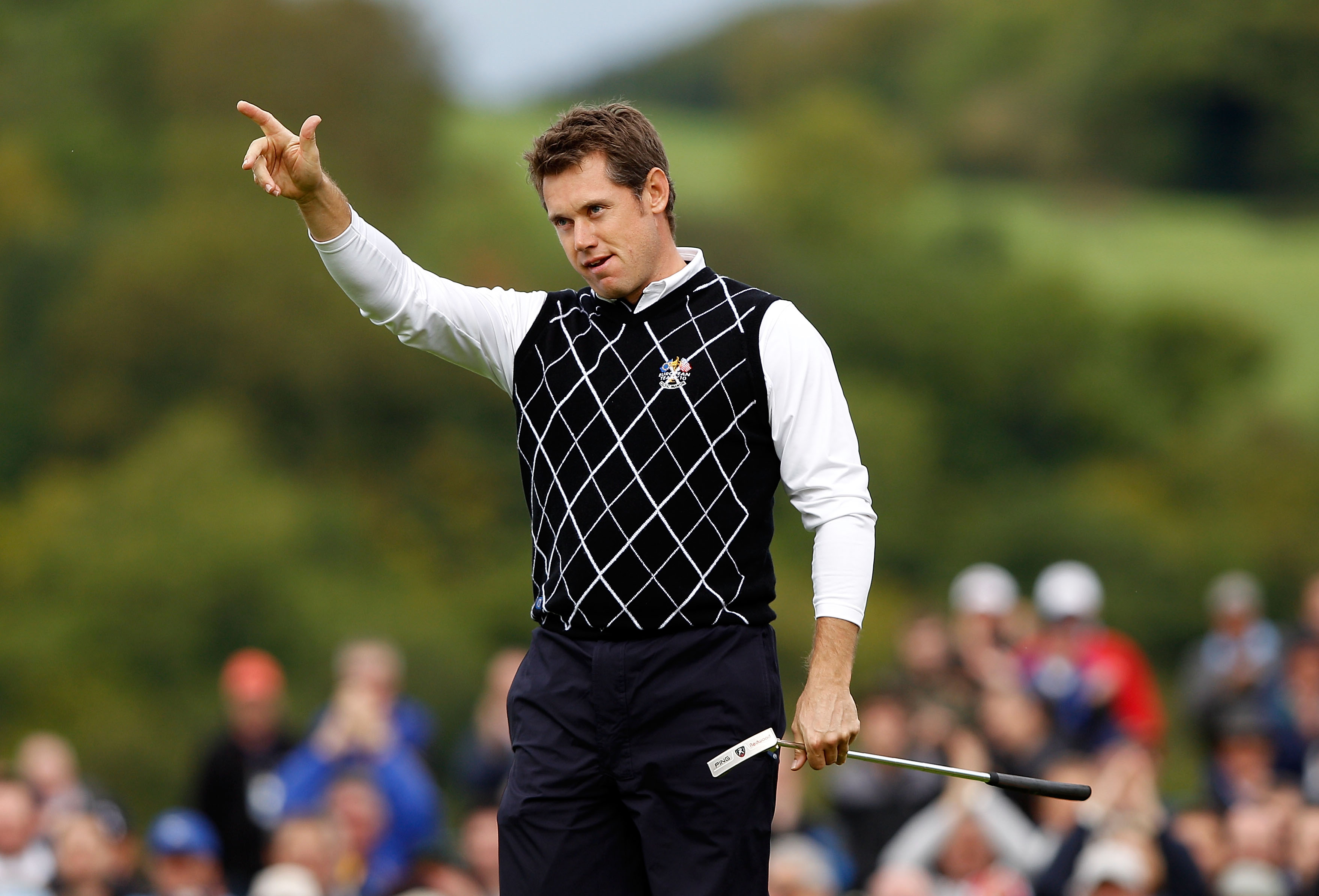
The former world number one played in every Ryder Cup between 1997 and 2016. After serving as a vice captain in 2018, he returned to playing action in the 2021 contest, which saw him draw alongside Nick Faldo on 11 for number of Ryder Cups played. The Englishman has enjoyed many highlights during his illustrious Ryder Cup career, one of which came at the K Club in 2006 when he went unbeaten and secured four points for Europe.
PHIL MICKELSON
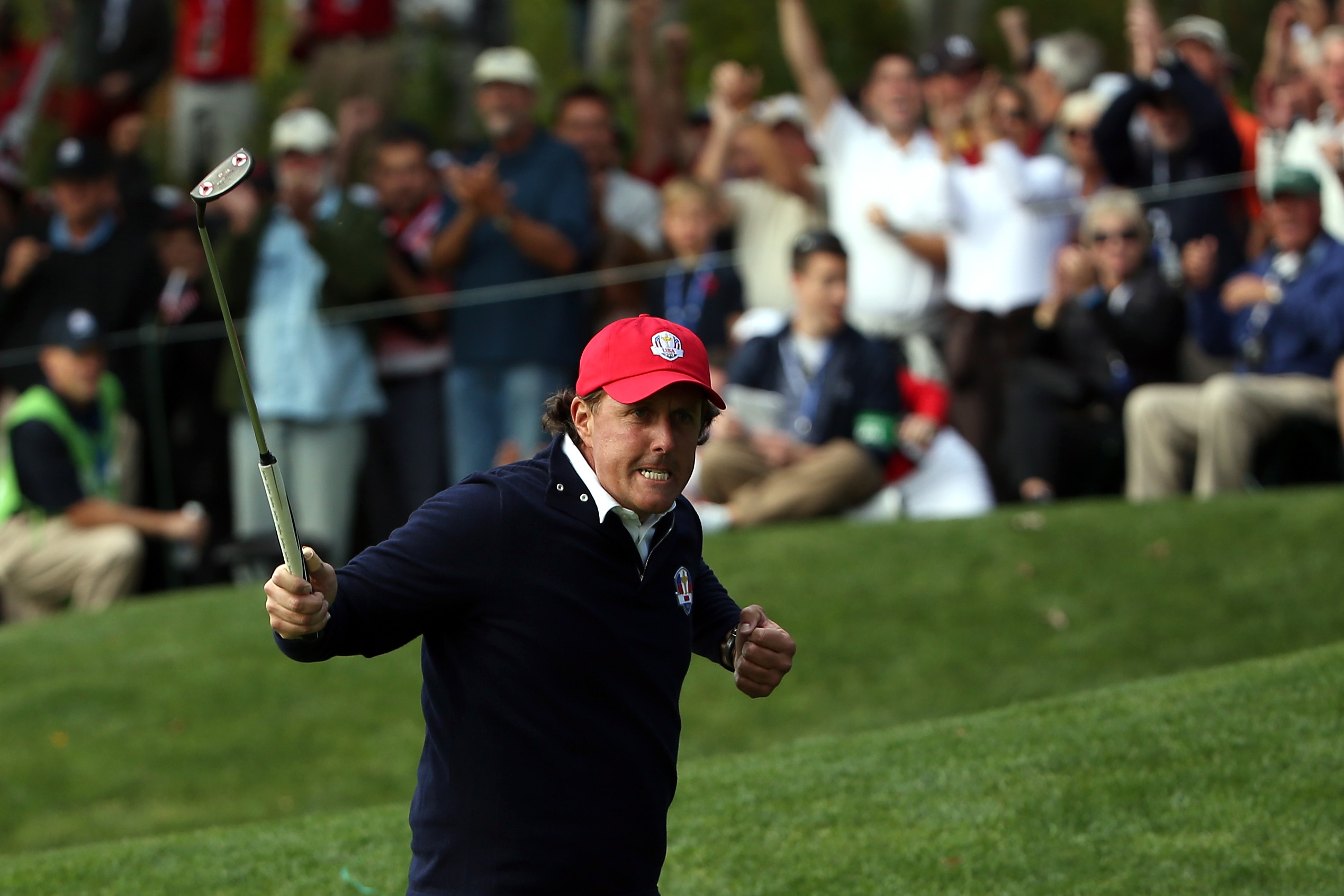
When Mickelson didn’t make the 2021 side at Whistling Straits, it was the first time ‘Lefty’ hadn’t been in the team since 1993. Some will say that he’s not always played to the same kind of level in the Ryder Cup as he has done so often throughout his own stellar career, but the 12 straight appearances between 1995 and 2018 still saw one of the game’s greatest ever players accumulate 21½ points for Team USA.

Michael has been with Golf Monthly since 2008. A multimedia journalist, he has also worked for The Football Association, where he created content to support the England football team, The FA Cup, London 2012, and FA Women's Super League. As content editor at Foremost Golf, Michael worked closely with golf's biggest equipment manufacturers and has developed an in-depth knowledge of this side of the industry. He's a regular contributor, covering instruction, equipment, travel and feature content. Michael has interviewed many of the game's biggest stars, including seven World No.1s, and has attended and reported on numerous Major Championships and Ryder Cups around the world. He's a member of Formby Golf Club in Merseyside, UK.
-
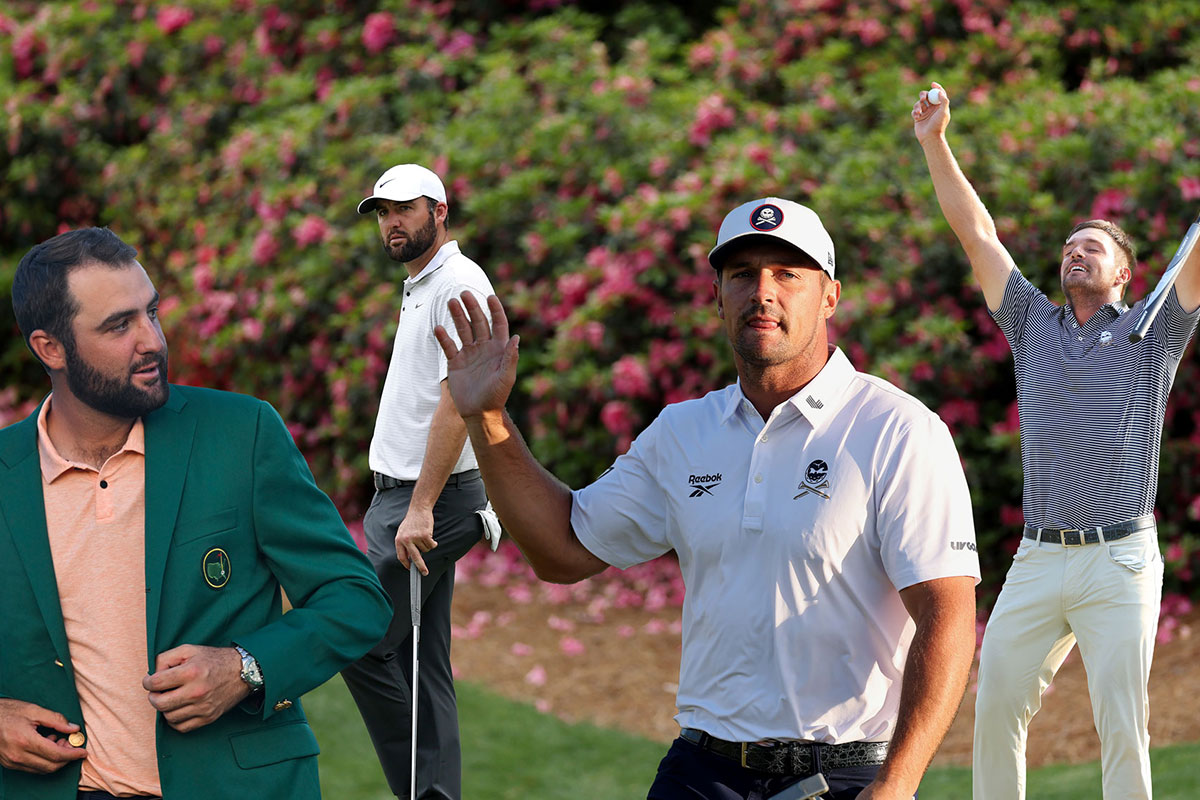 If Bryson DeChambeau Wins The Masters Today, Will He Eclipse Scottie Scheffler As Golf's Shining Star?
If Bryson DeChambeau Wins The Masters Today, Will He Eclipse Scottie Scheffler As Golf's Shining Star?Bryson DeChambeau heads into the final round at The Masters with a chance to win a third Major, which I believe would firmly cement him as golf's new poster boy
By Barry Plummer Published
-
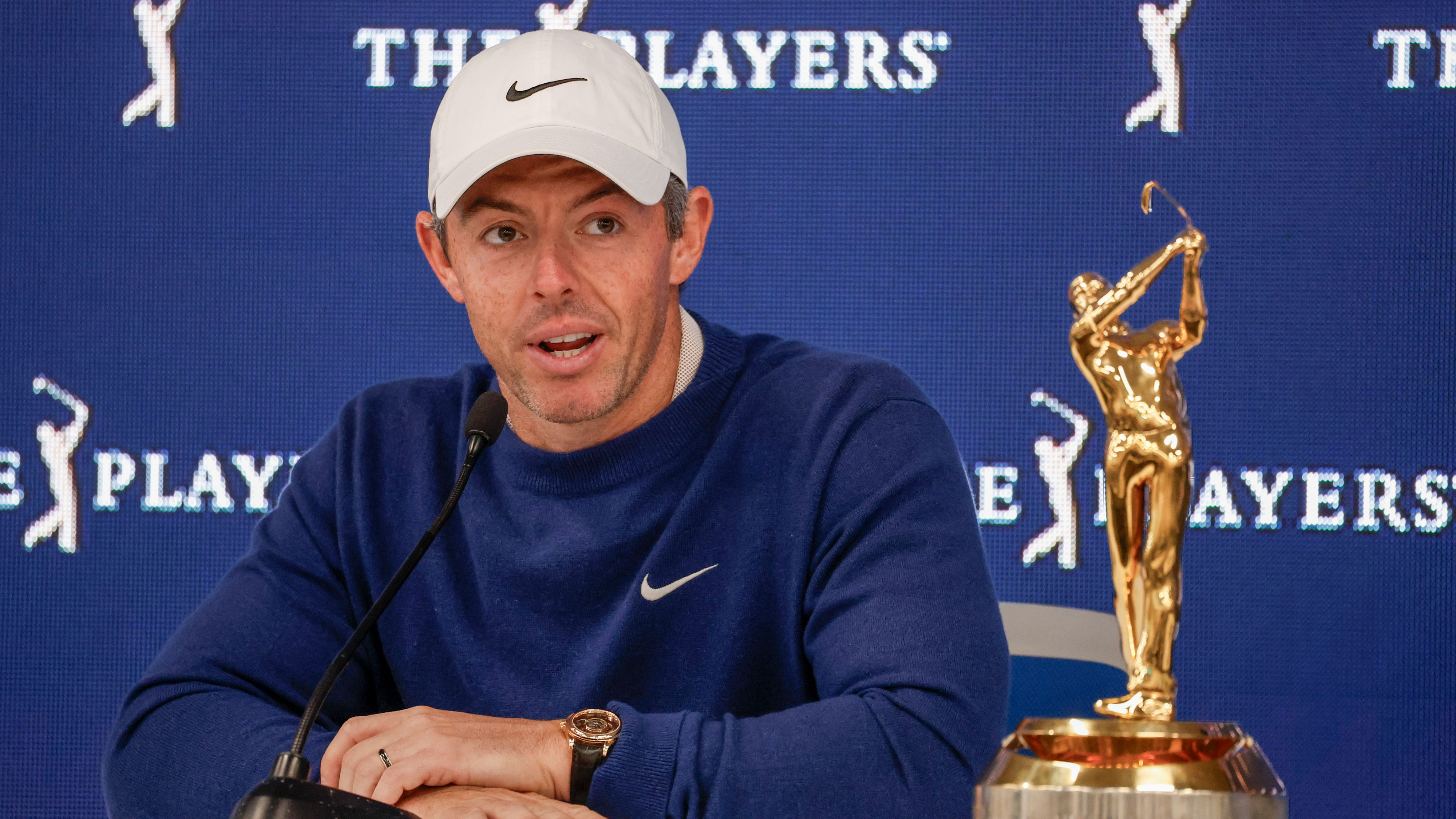 Should It Be Mandatory For Pro Golfers To Speak To The Media After A Round?
Should It Be Mandatory For Pro Golfers To Speak To The Media After A Round?There seems to be a growing debate in the men's game as to whether pros should have to speak to the media after they've finished - our writers discuss...
By Michael Weston Published
-
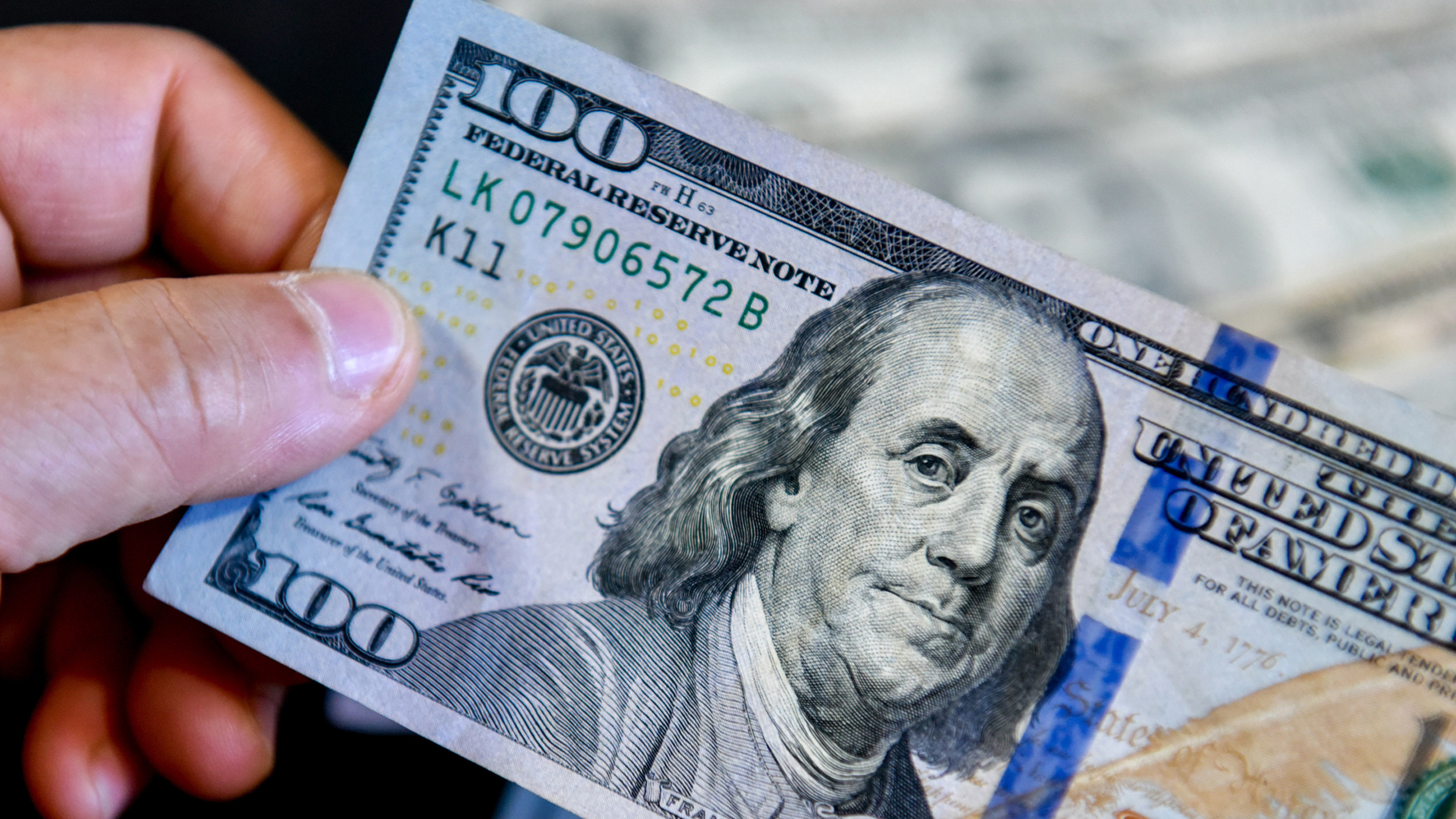 32 Ways To Spend $100 On Golf
32 Ways To Spend $100 On GolfSo, you've got a budget of one hundred bucks to spend on golf. What are you going to buy? Here are some ideas...
By Michael Weston Published
-
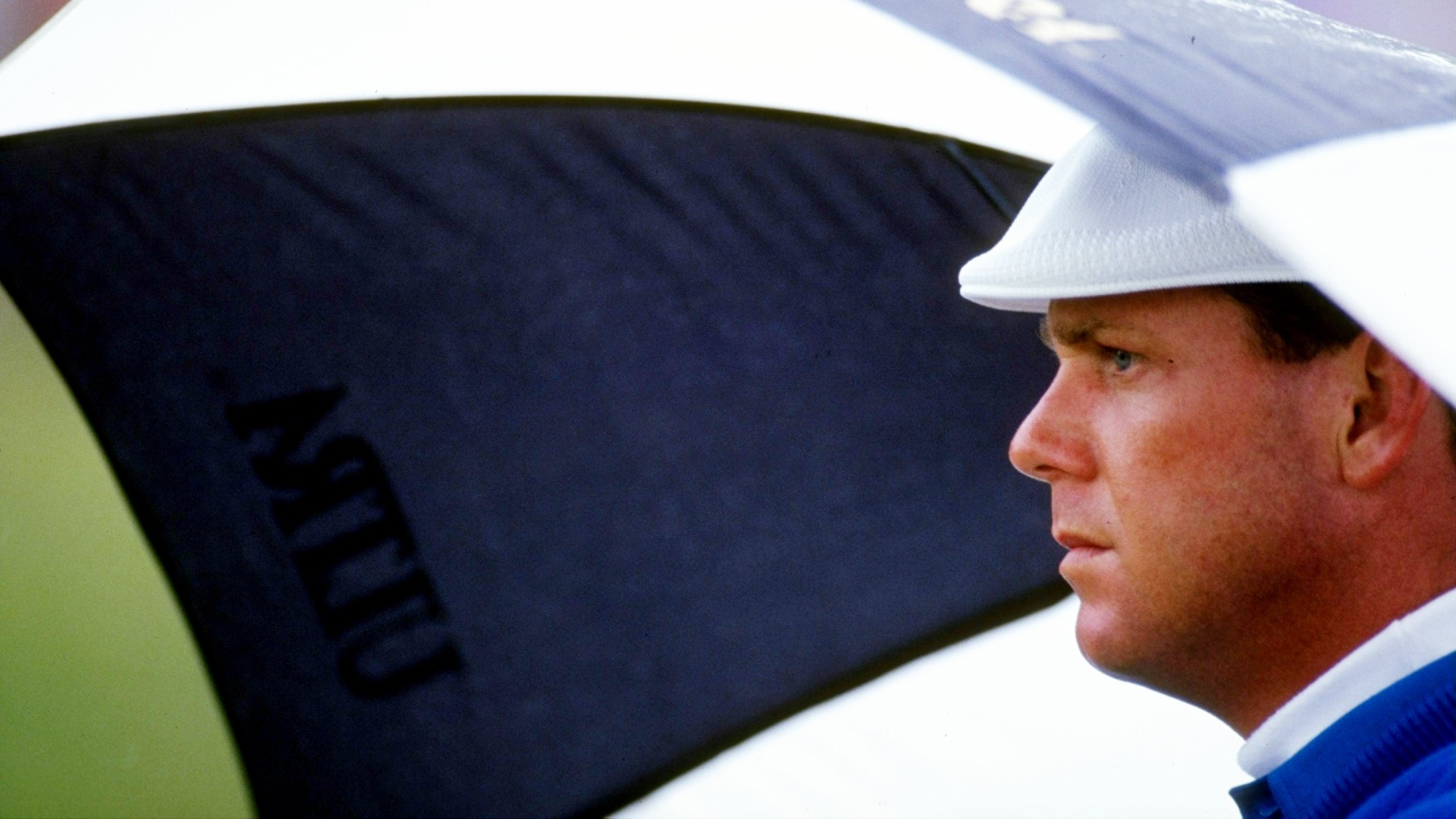 32 Of The Most Heartbreaking Moments In Golf History
32 Of The Most Heartbreaking Moments In Golf HistoryWe look back at some of the game's most poignant and tragic moments, from the 19th century to the modern day
By Mark Townsend Published
-
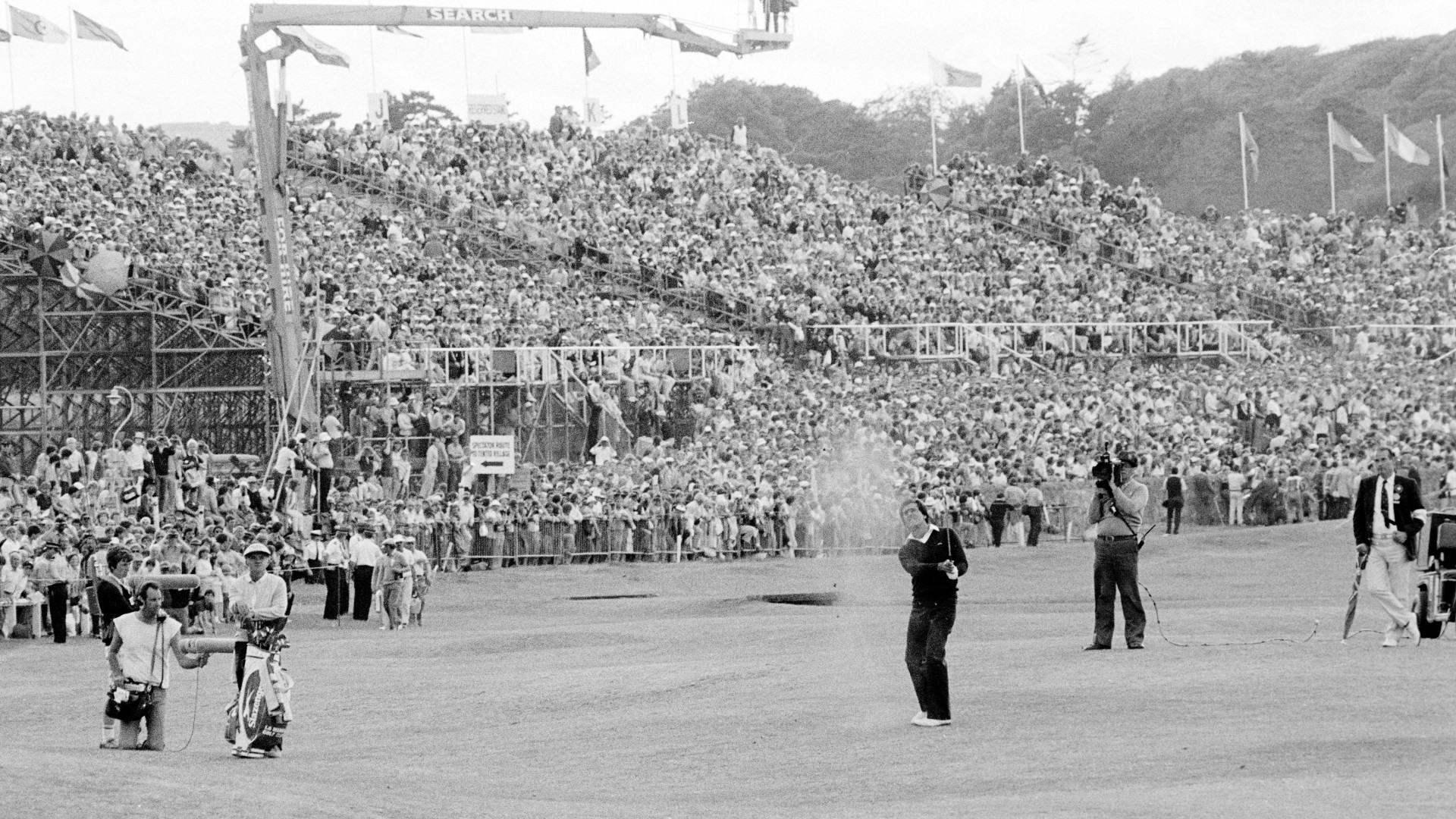 32 Iconic Seve Ballesteros Moments
32 Iconic Seve Ballesteros MomentsWe remember and celebrate some of the stand-out moments from the Spanish legend's career
By Mark Townsend Published
-
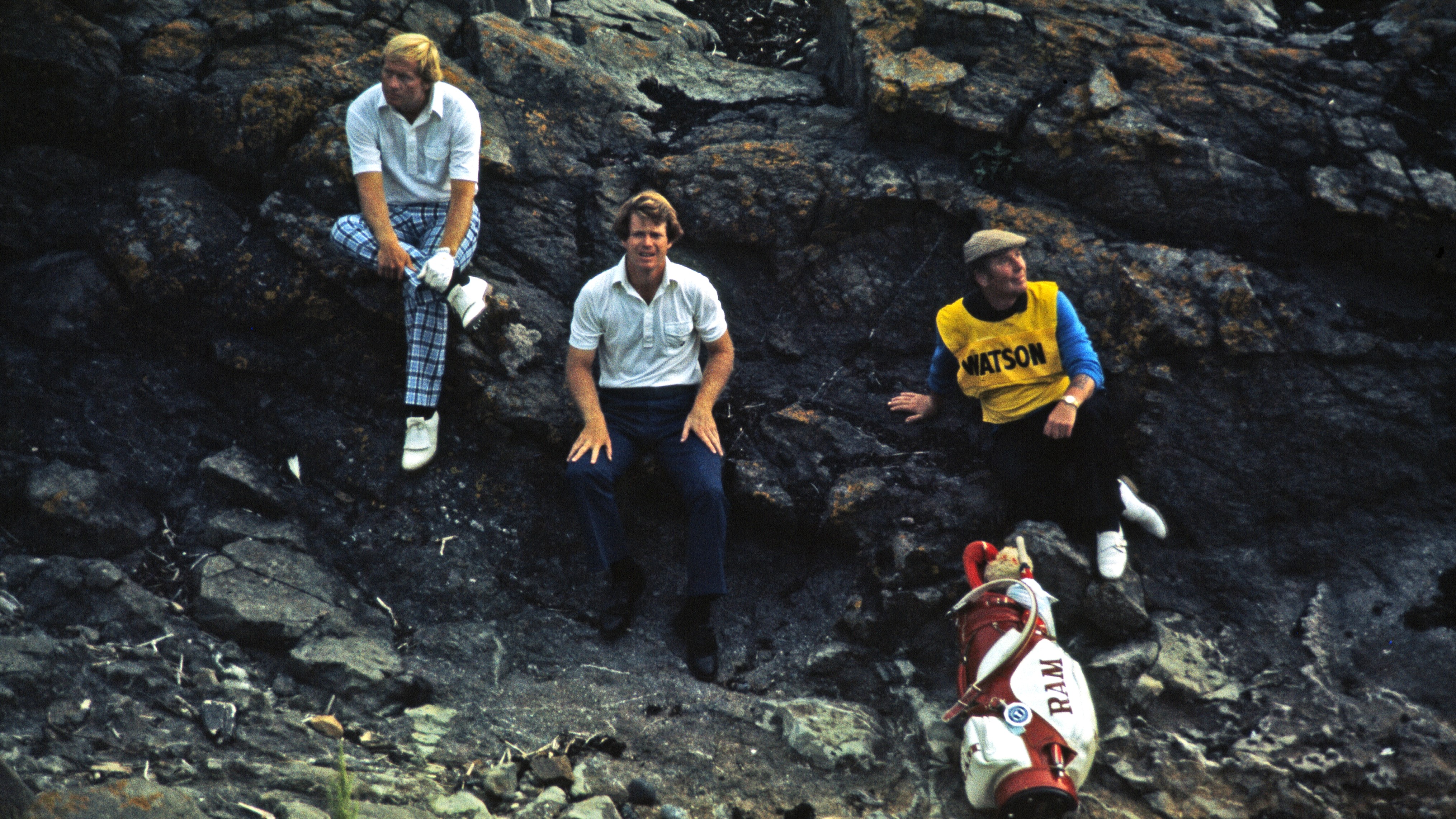 32 Best Golfers Of The 70s
32 Best Golfers Of The 70sWho were the best golfers of the 70s, a decade which golf saw the excellence of the Golden Bear, the start of a rivalry and an emerging Spanish superstar?
By Roderick Easdale Published
-
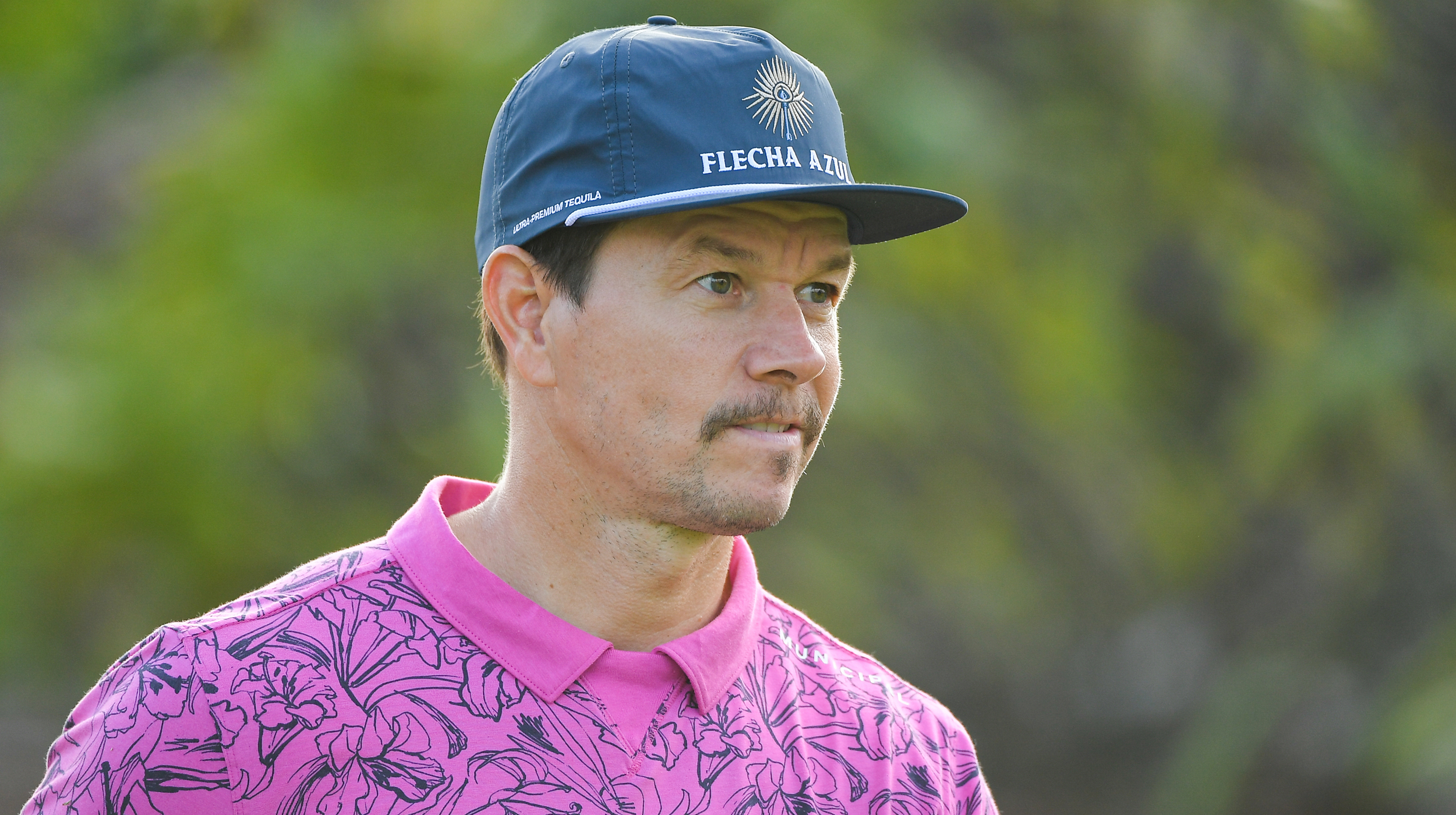 32 Celebrities You (Probably) Didn't Know Play Golf
32 Celebrities You (Probably) Didn't Know Play GolfWe take a look at some of the famous faces to have fallen in love with the game of golf
By Michael Weston Published
-
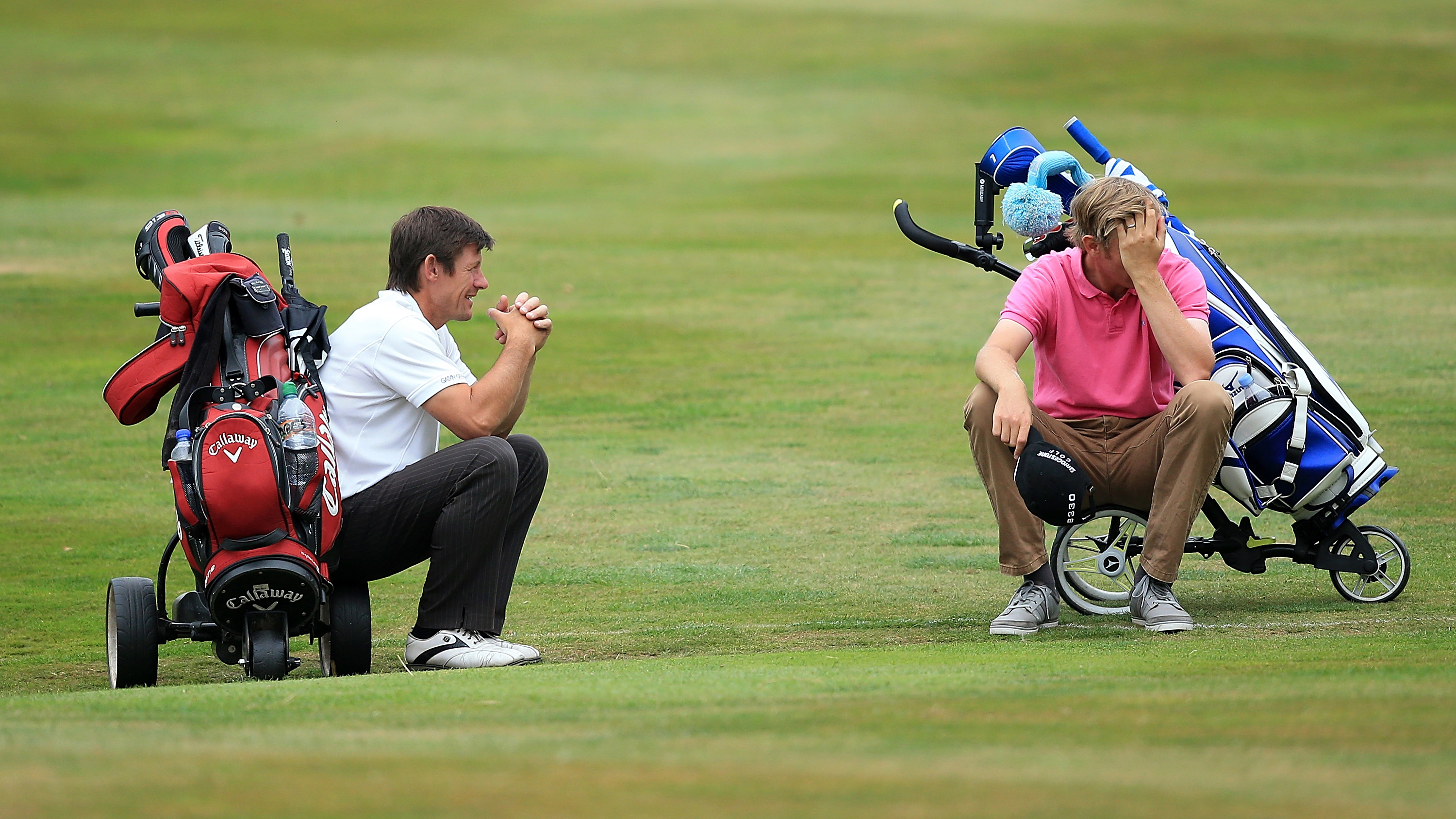 32 Reasons Behind Golf's No.1 Pet Peeve... Slow Play!
32 Reasons Behind Golf's No.1 Pet Peeve... Slow Play!Slow play has become a common topic of conversation both at golf clubs and out on tour. Here, we highlight some of the factors contributing to the issue
By Jeremy Ellwood Published
-
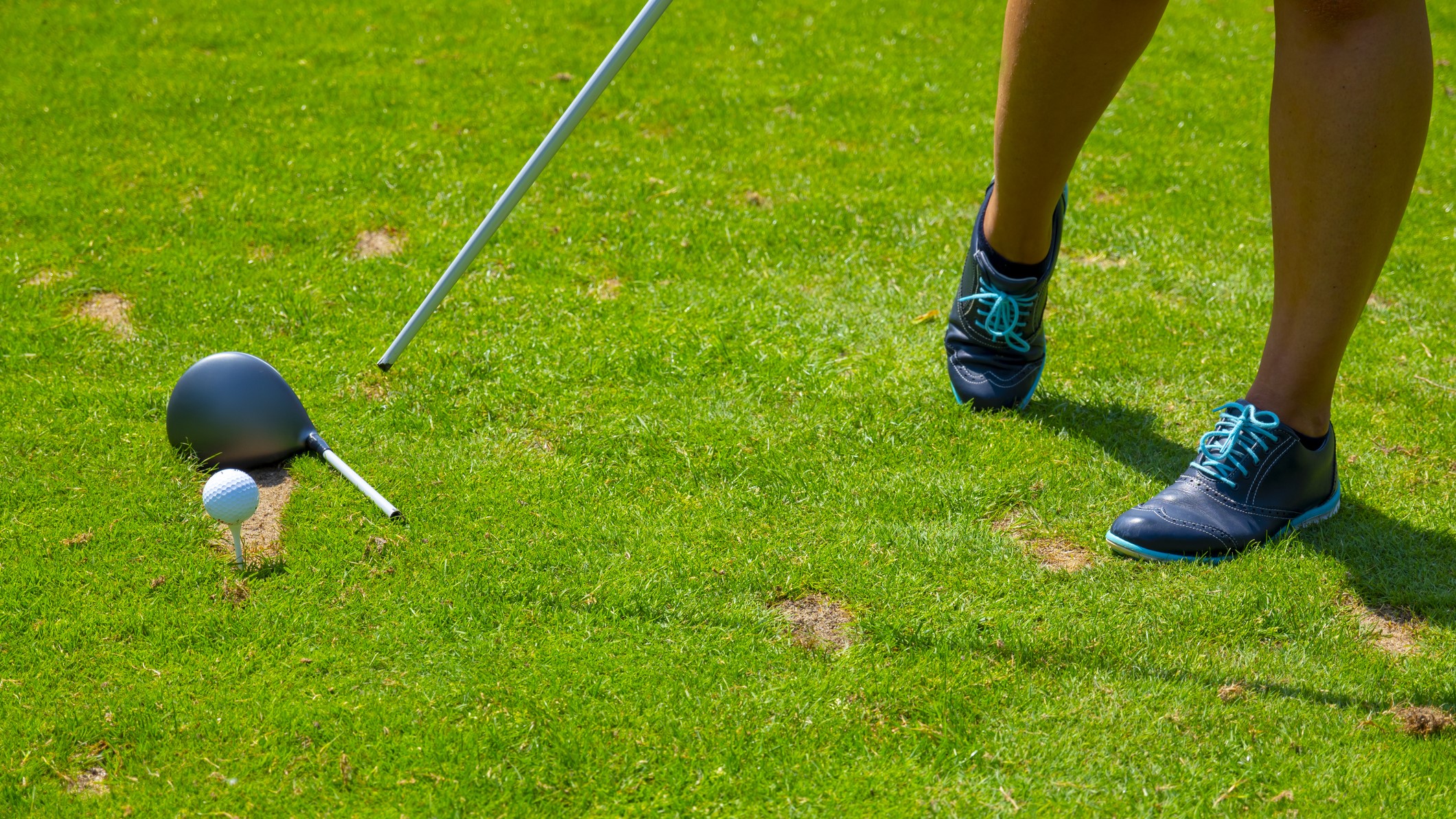 32 Best Golf Quotes
32 Best Golf QuotesA lot of things have been said about golf, so we have rounded up the best golf quotes which reflect the beguiling, infuriating and bizarre nature of the game we love... and sometimes hate
By Roderick Easdale Published
-
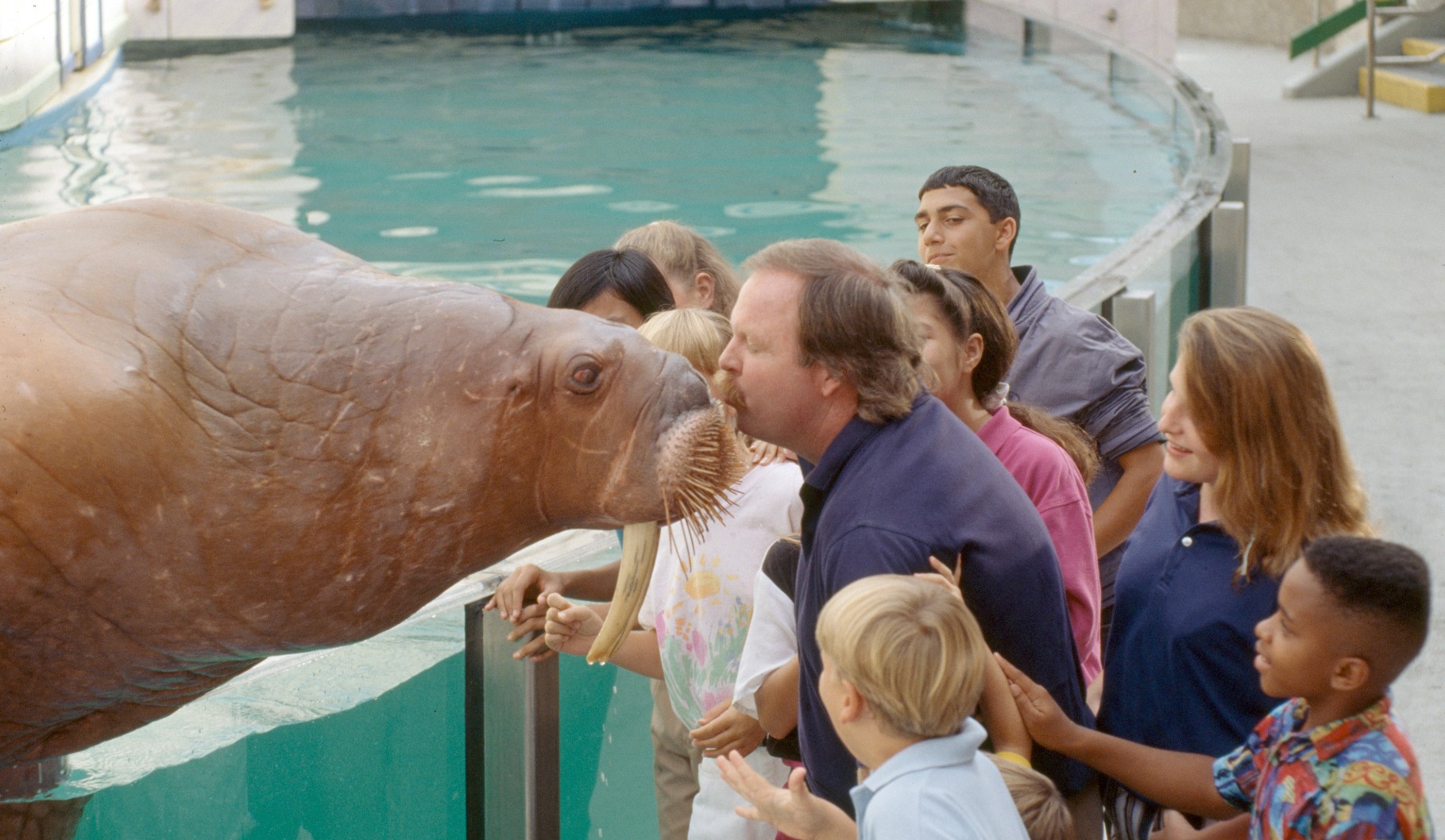 32 Best Golfer Nicknames
32 Best Golfer NicknamesWe look at out favourite nicknames and how some of golf's greatest players received their famous monikers
By Mark Townsend Published